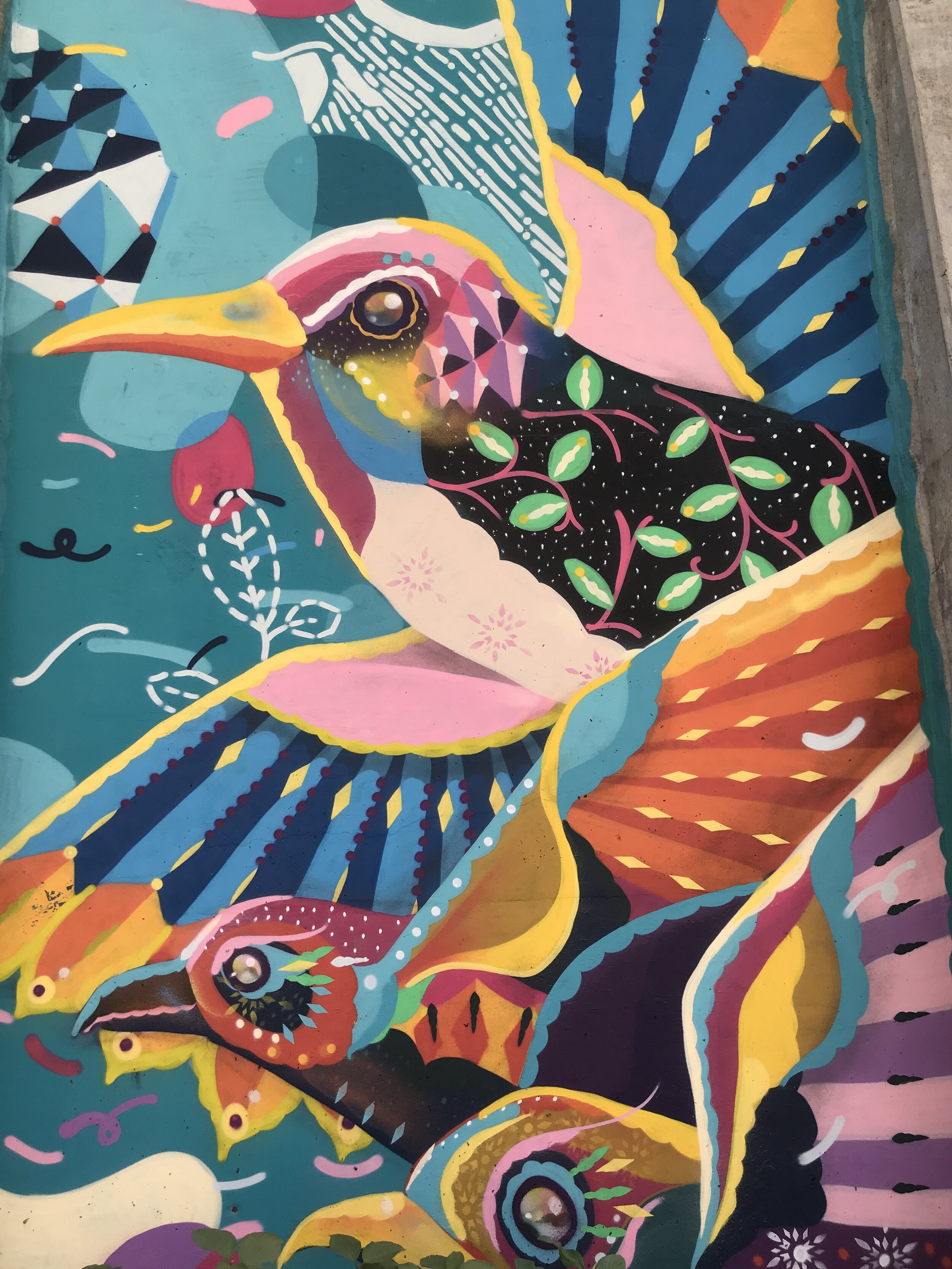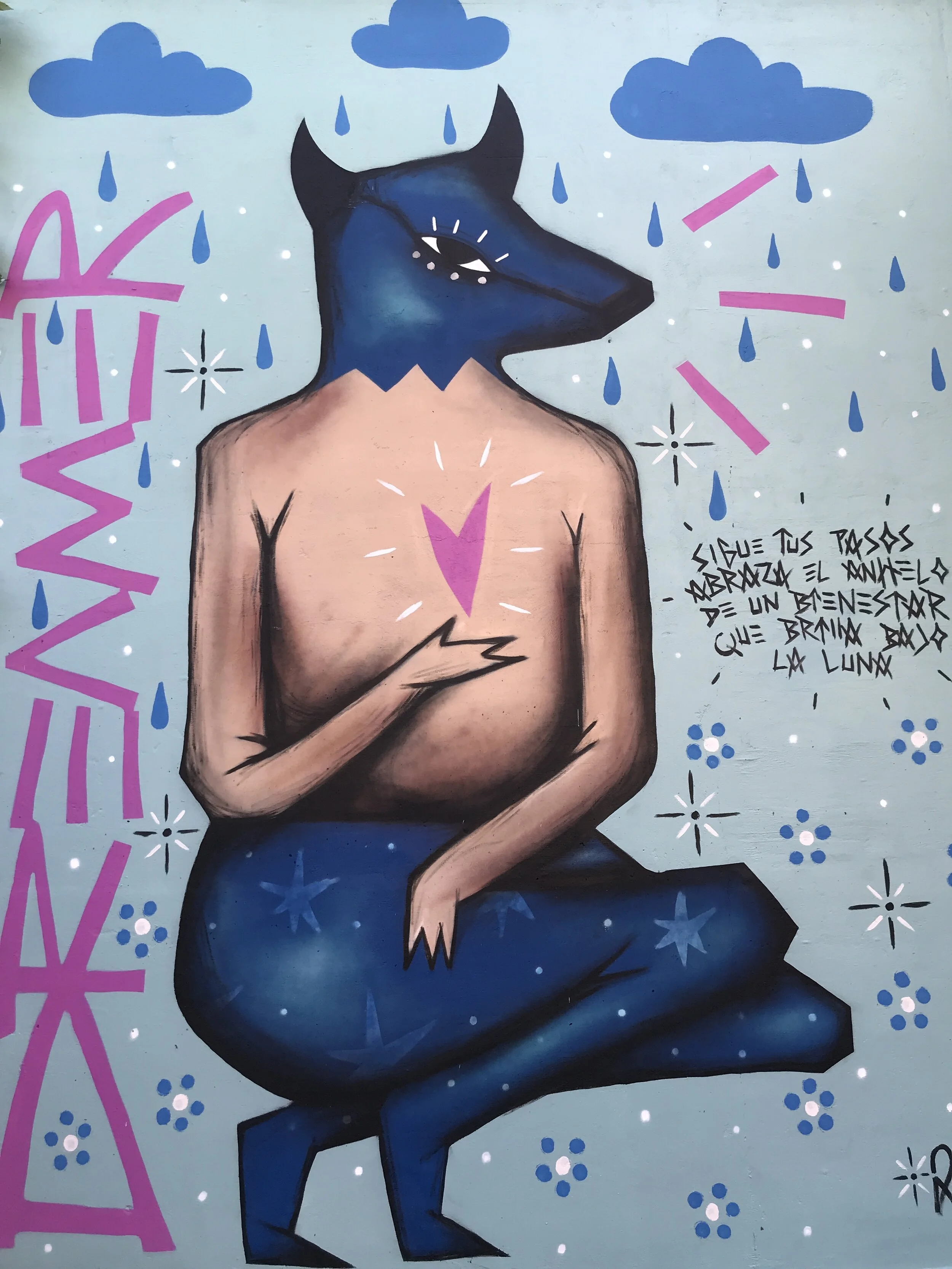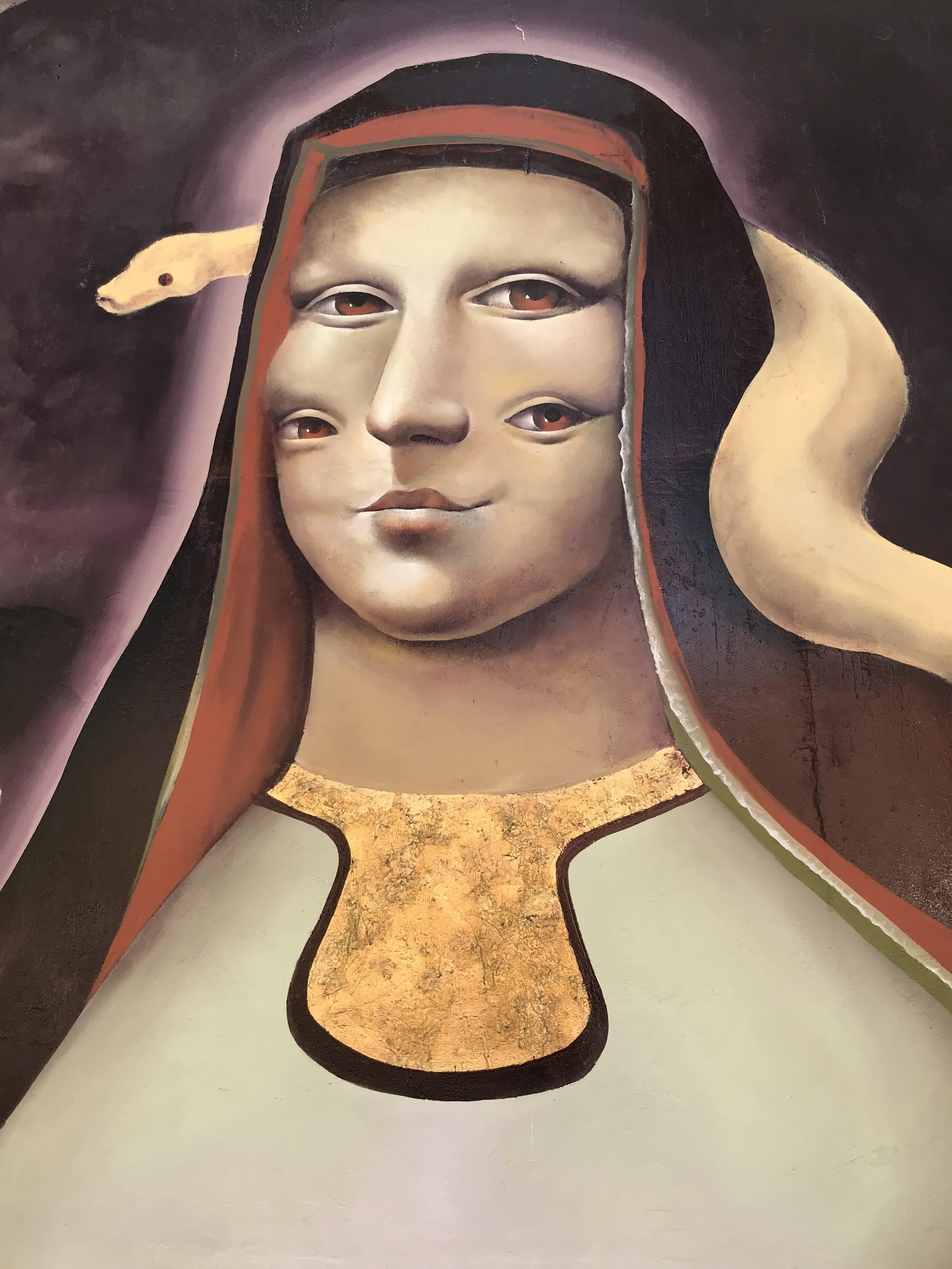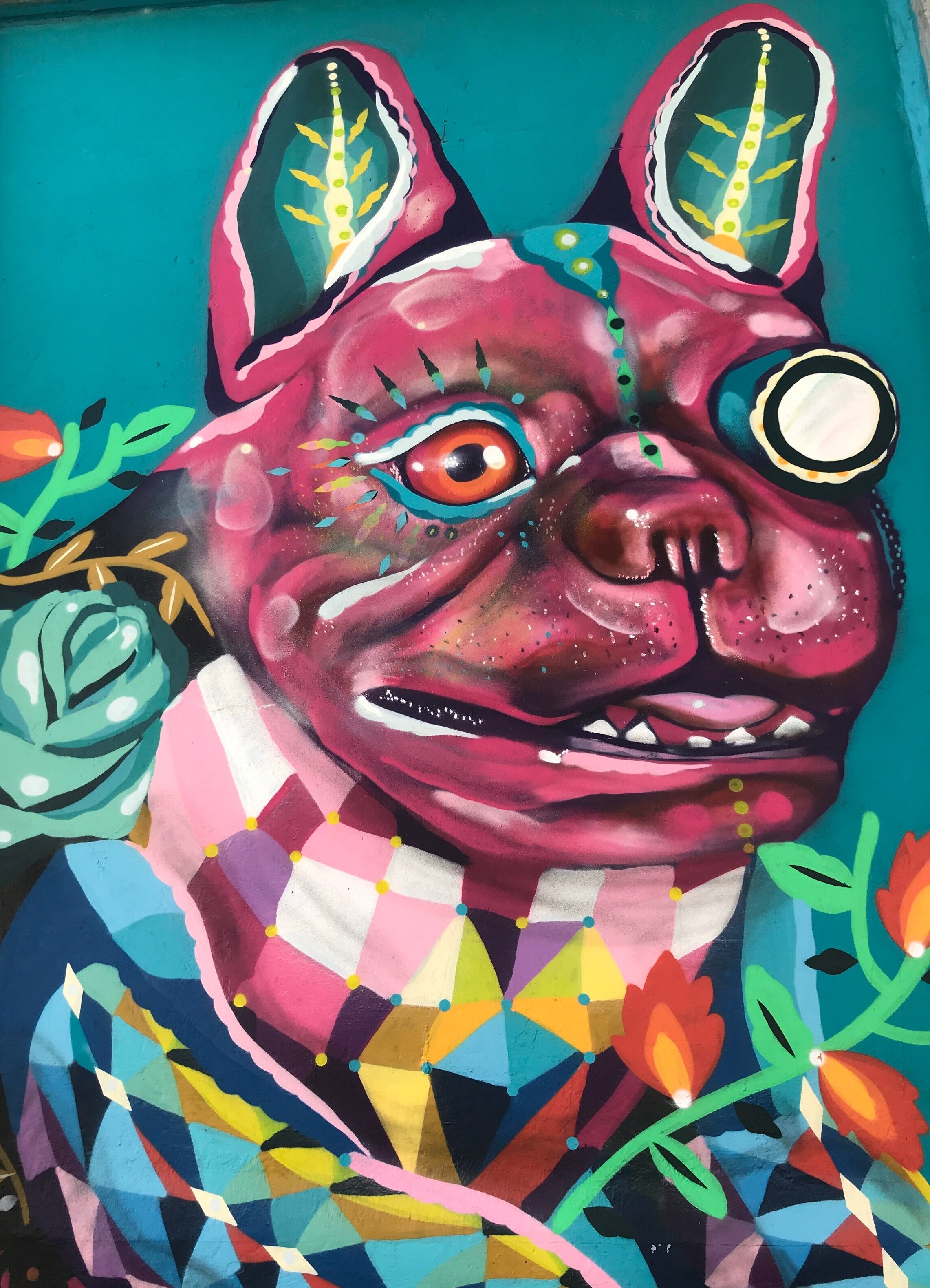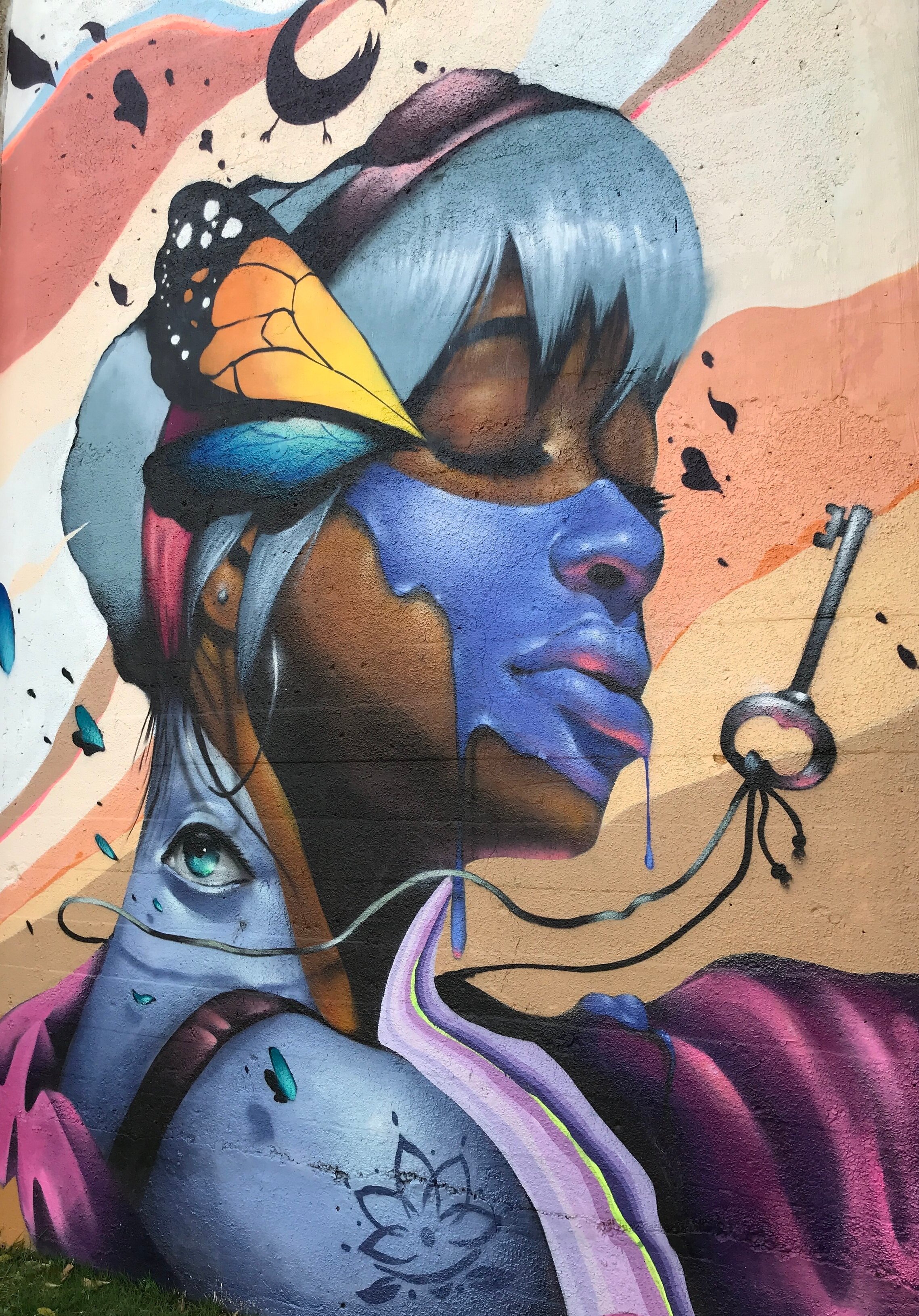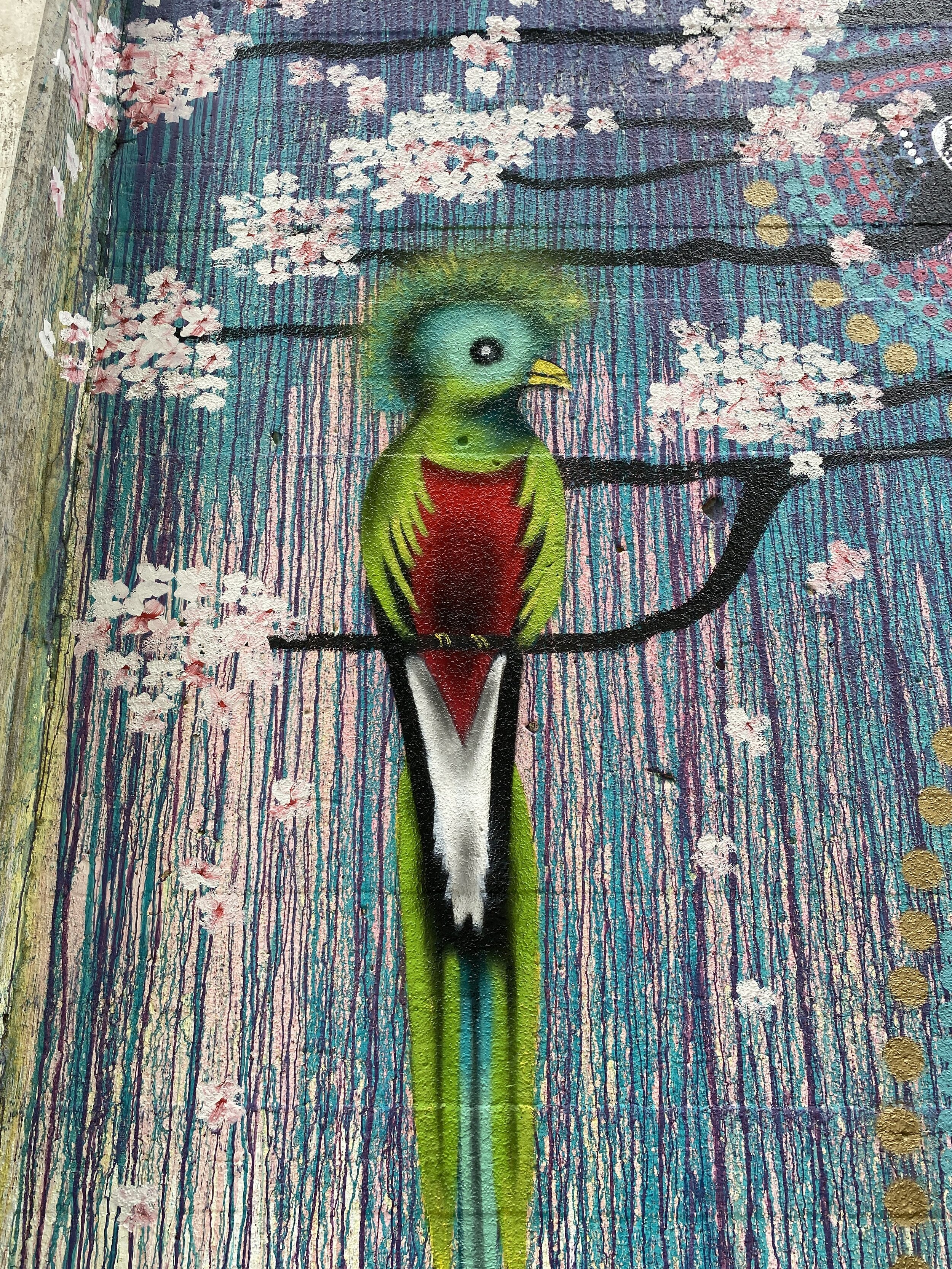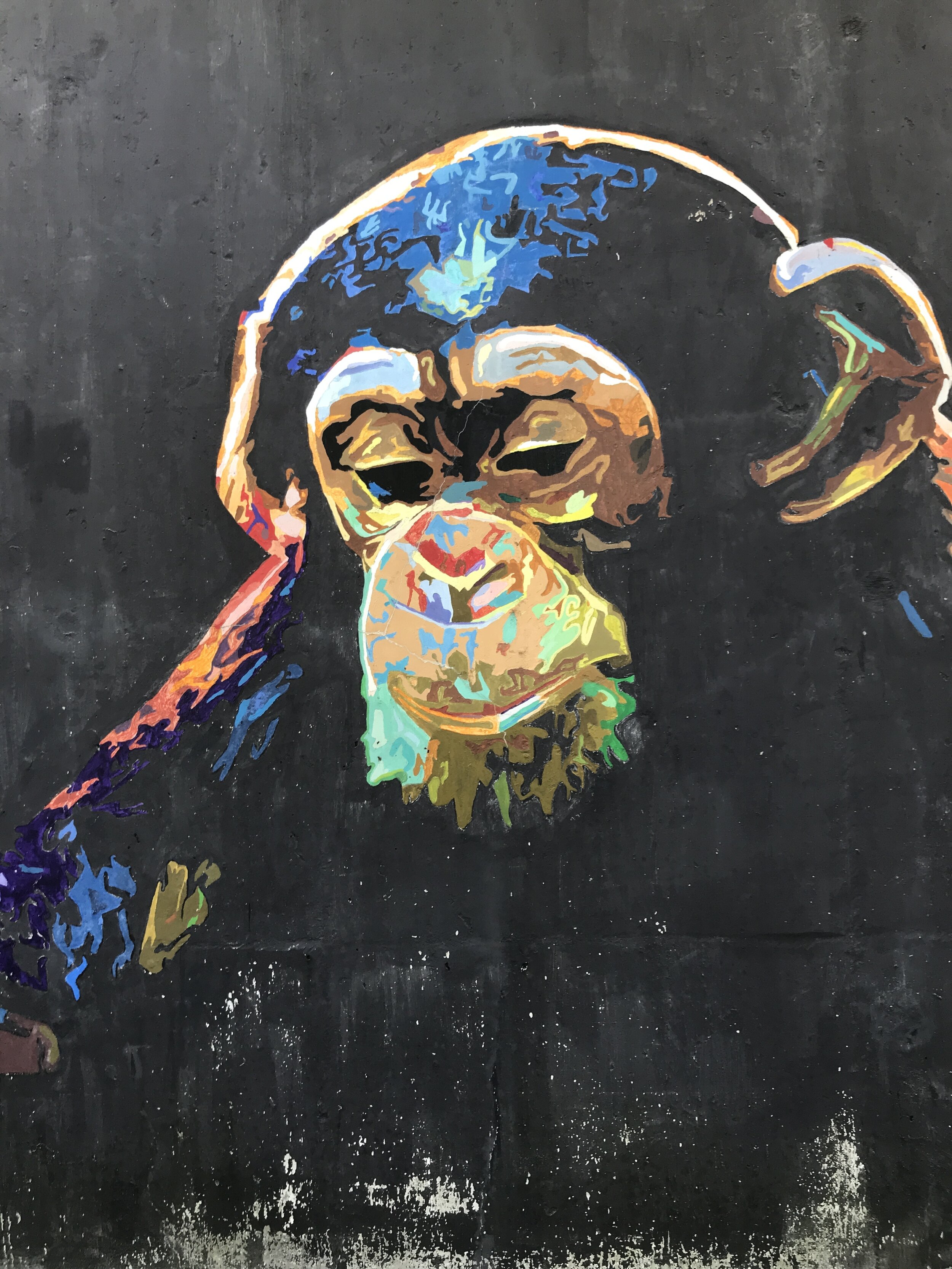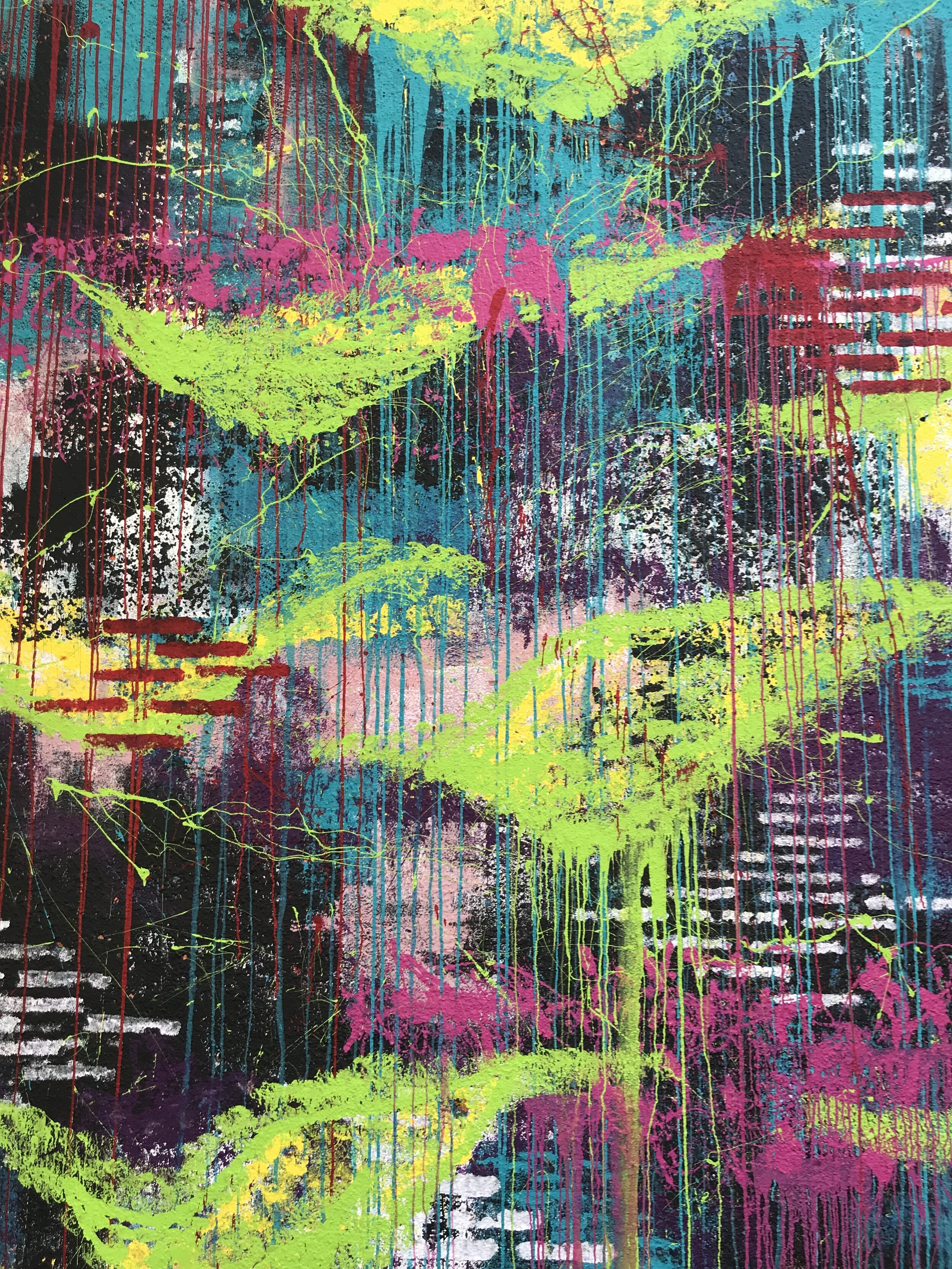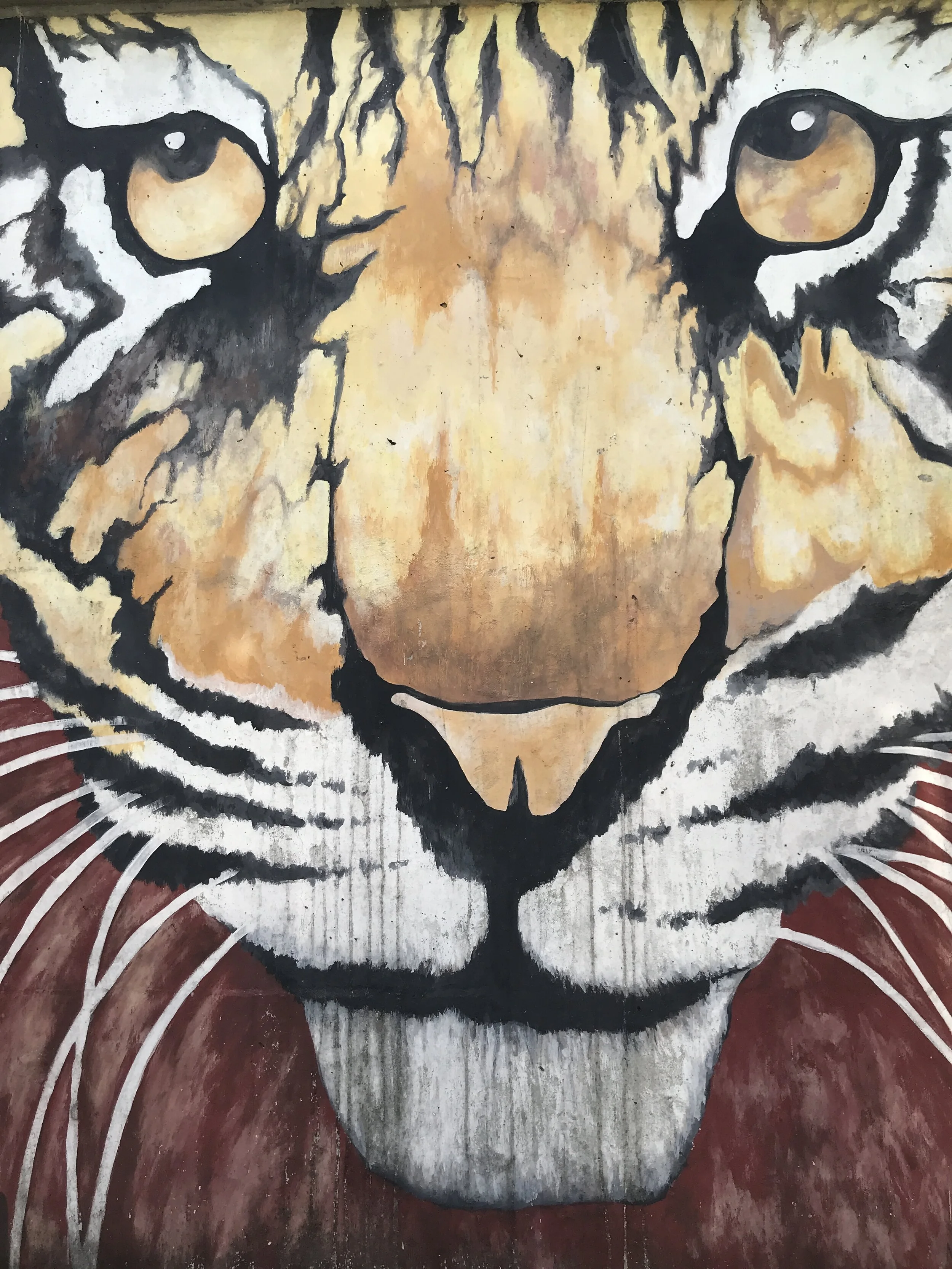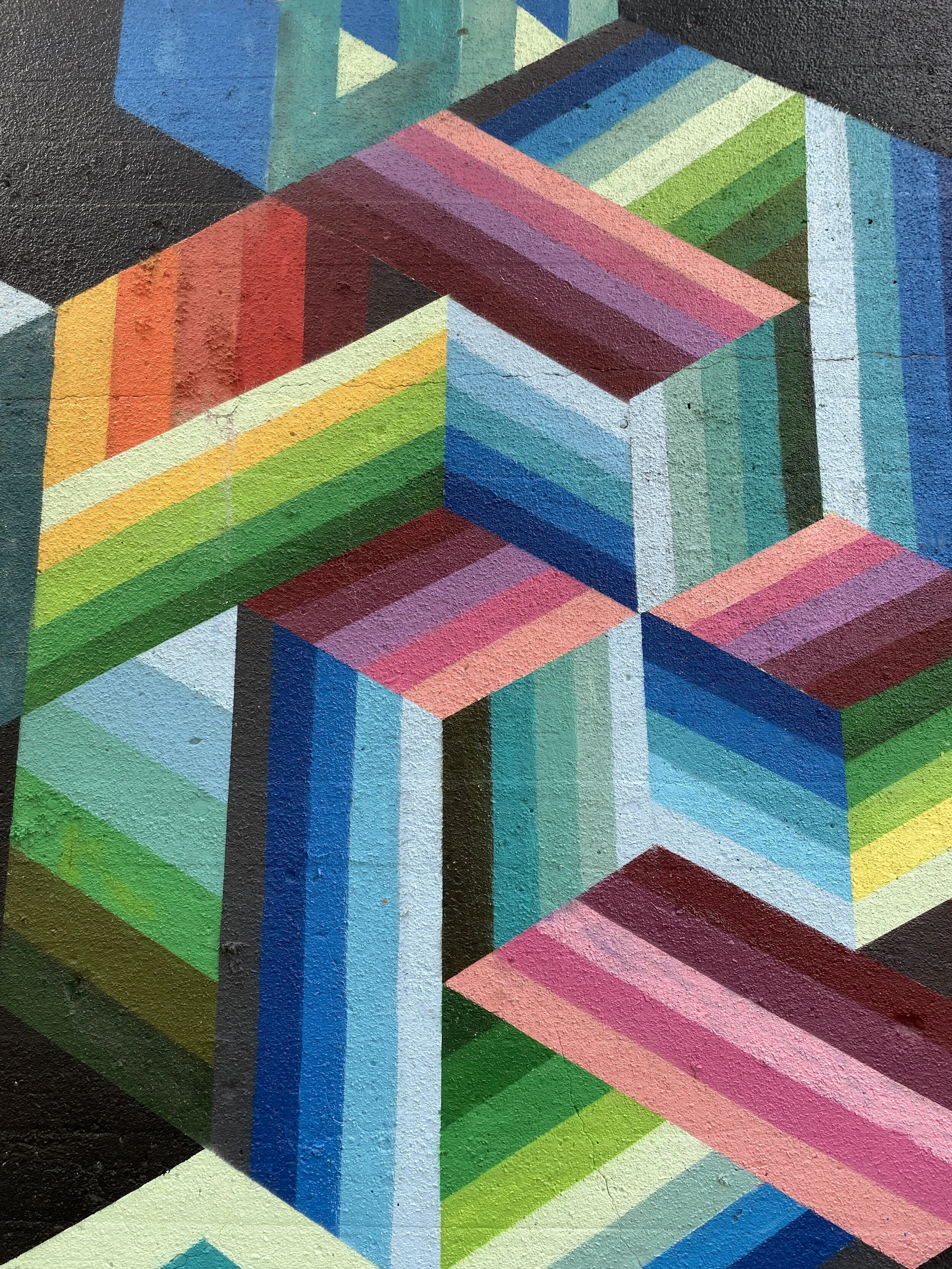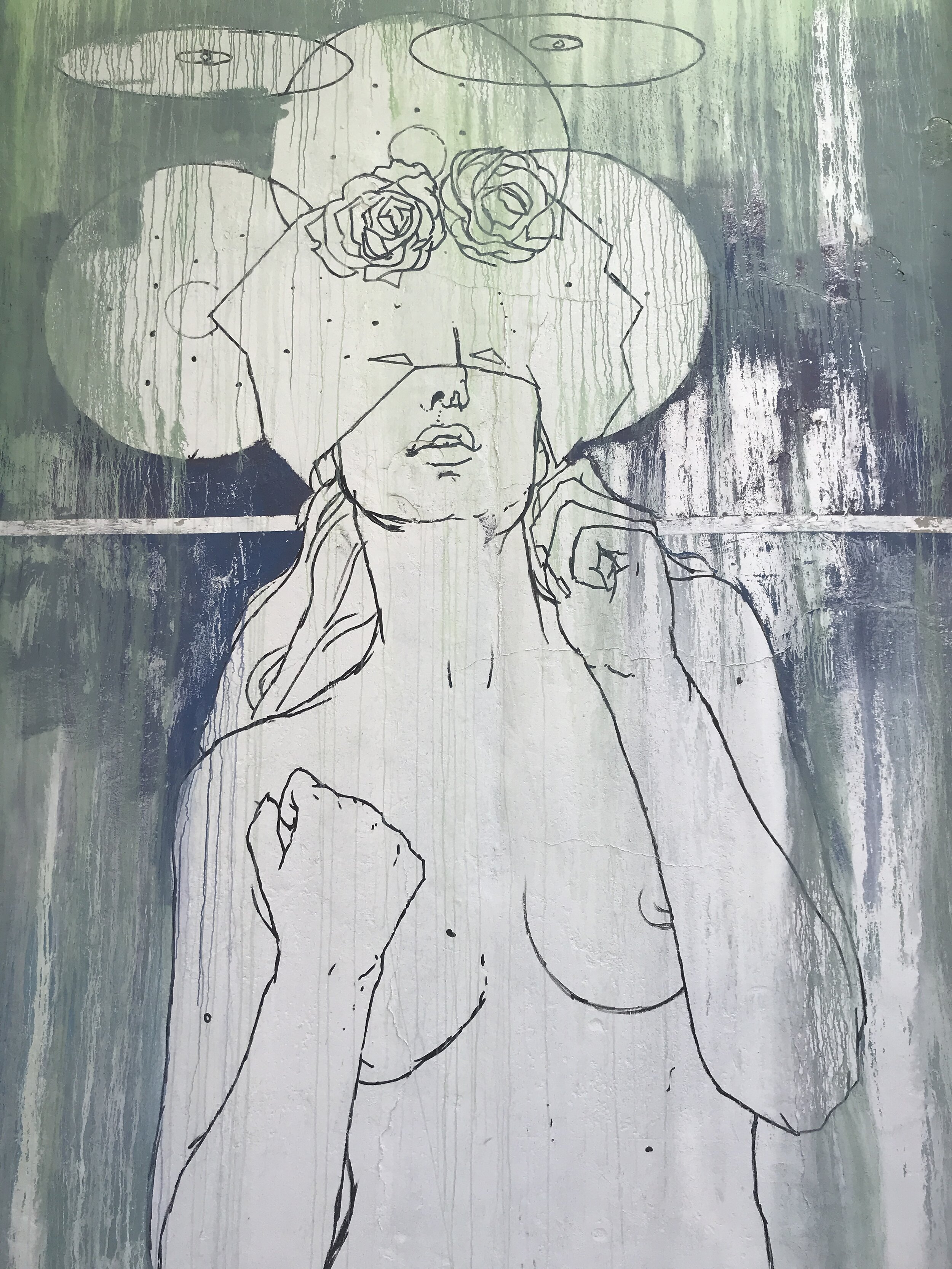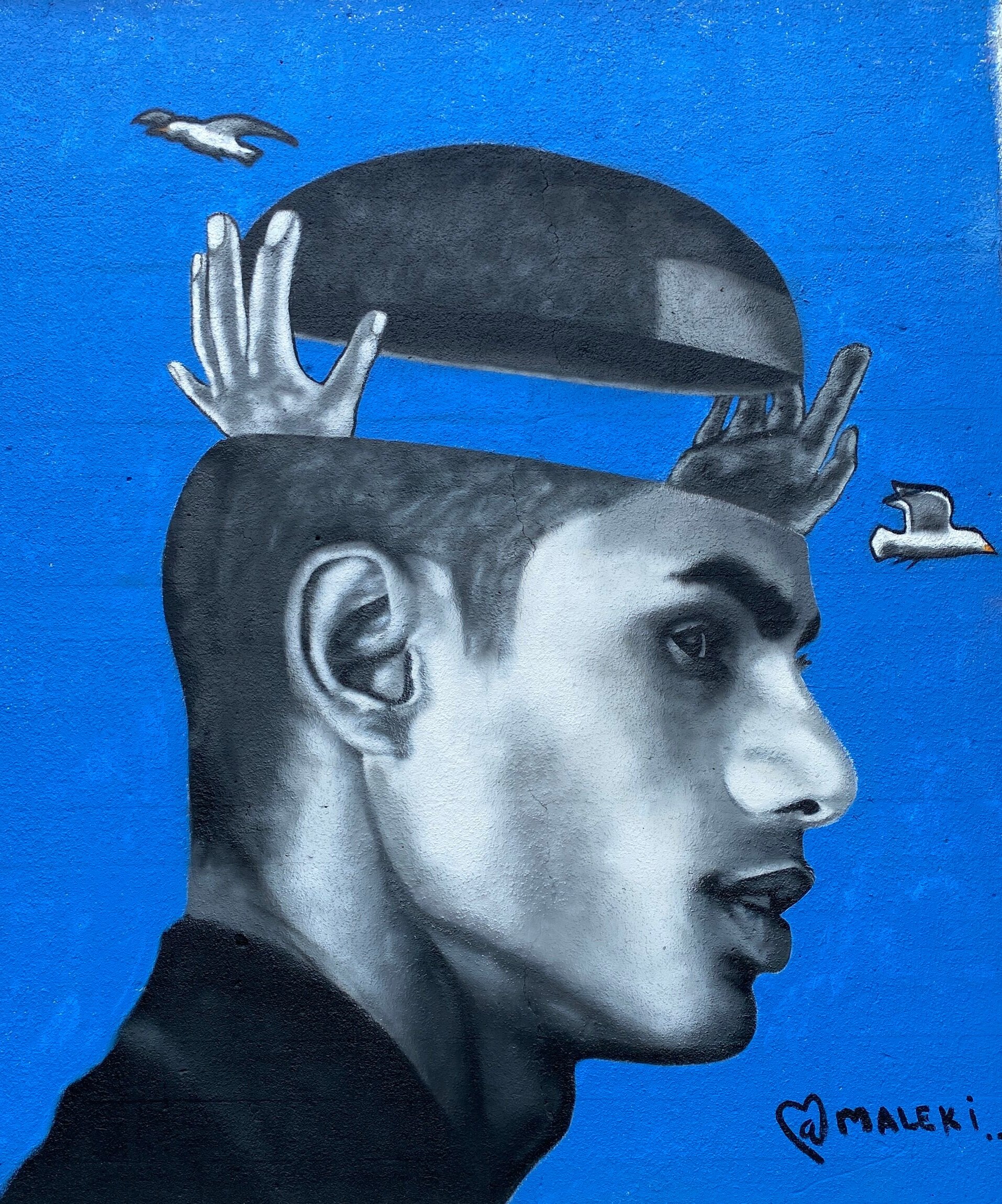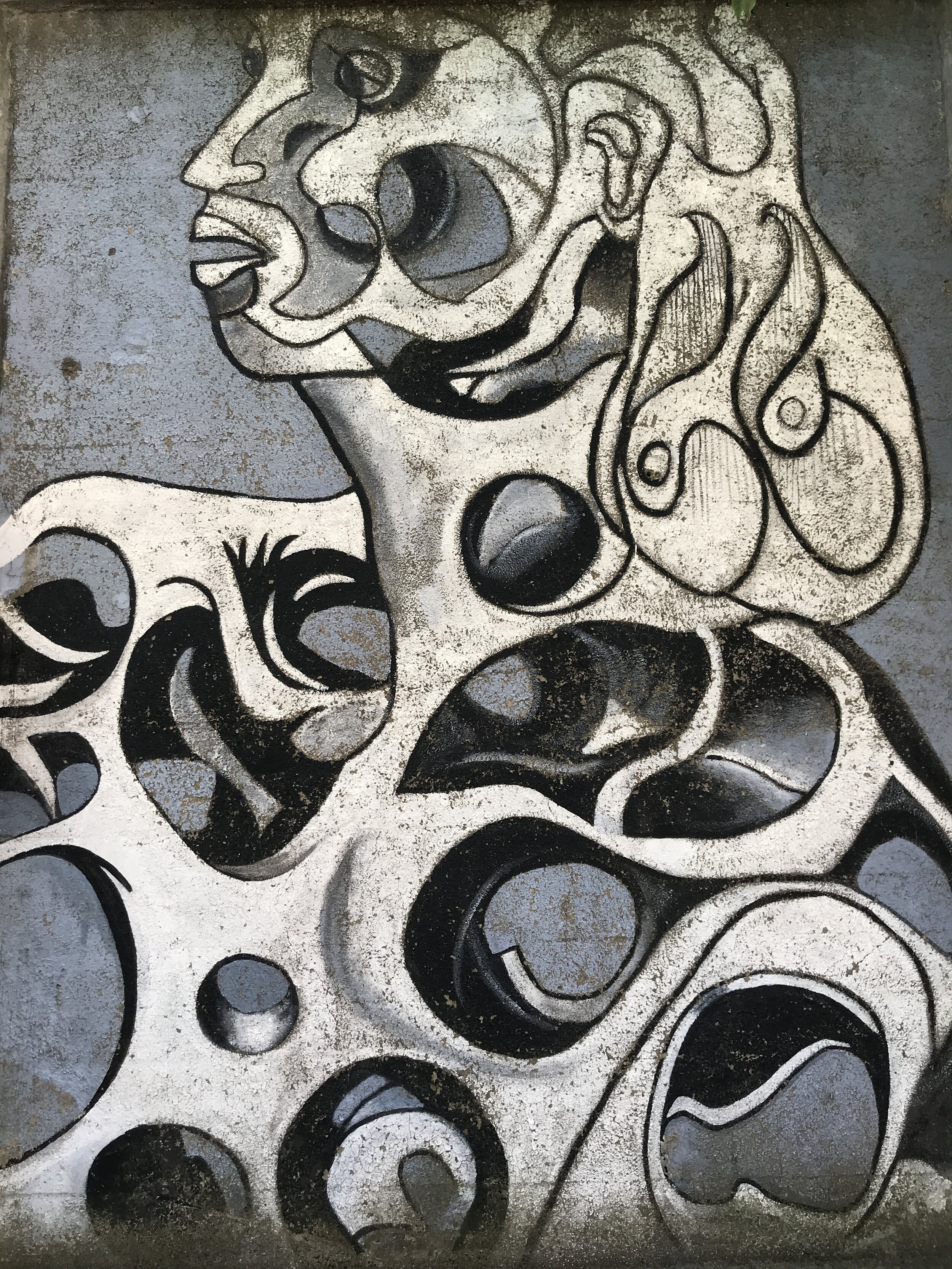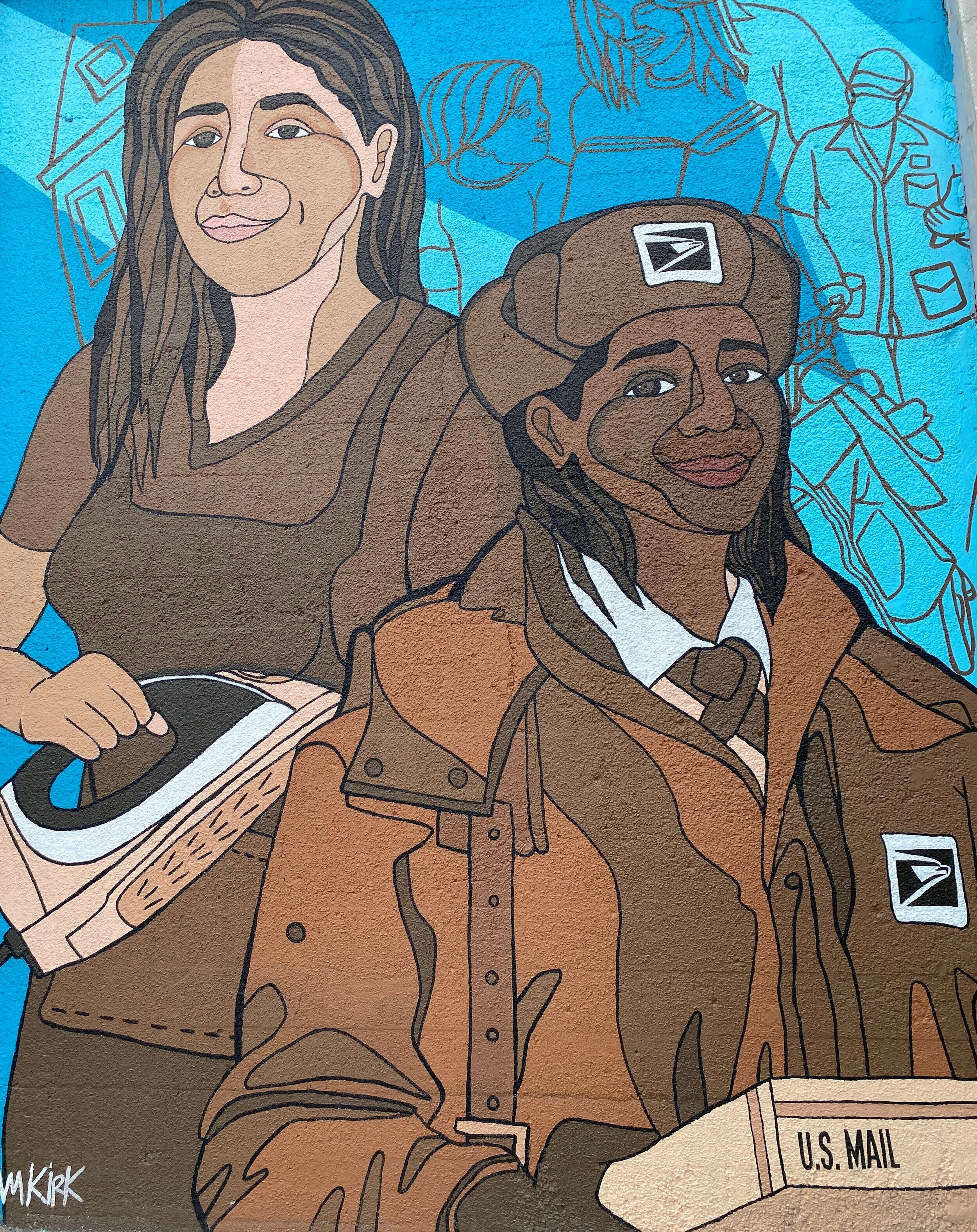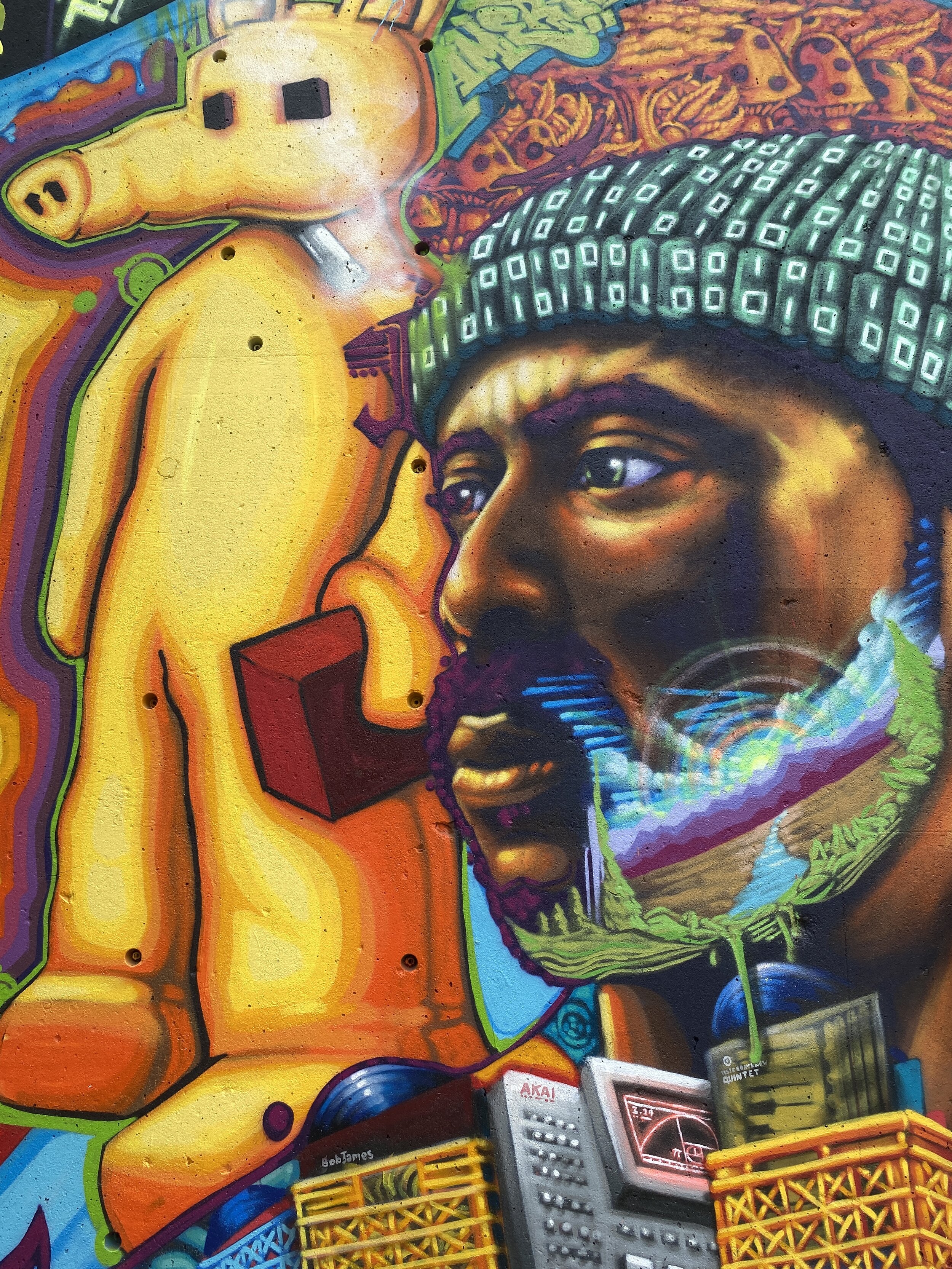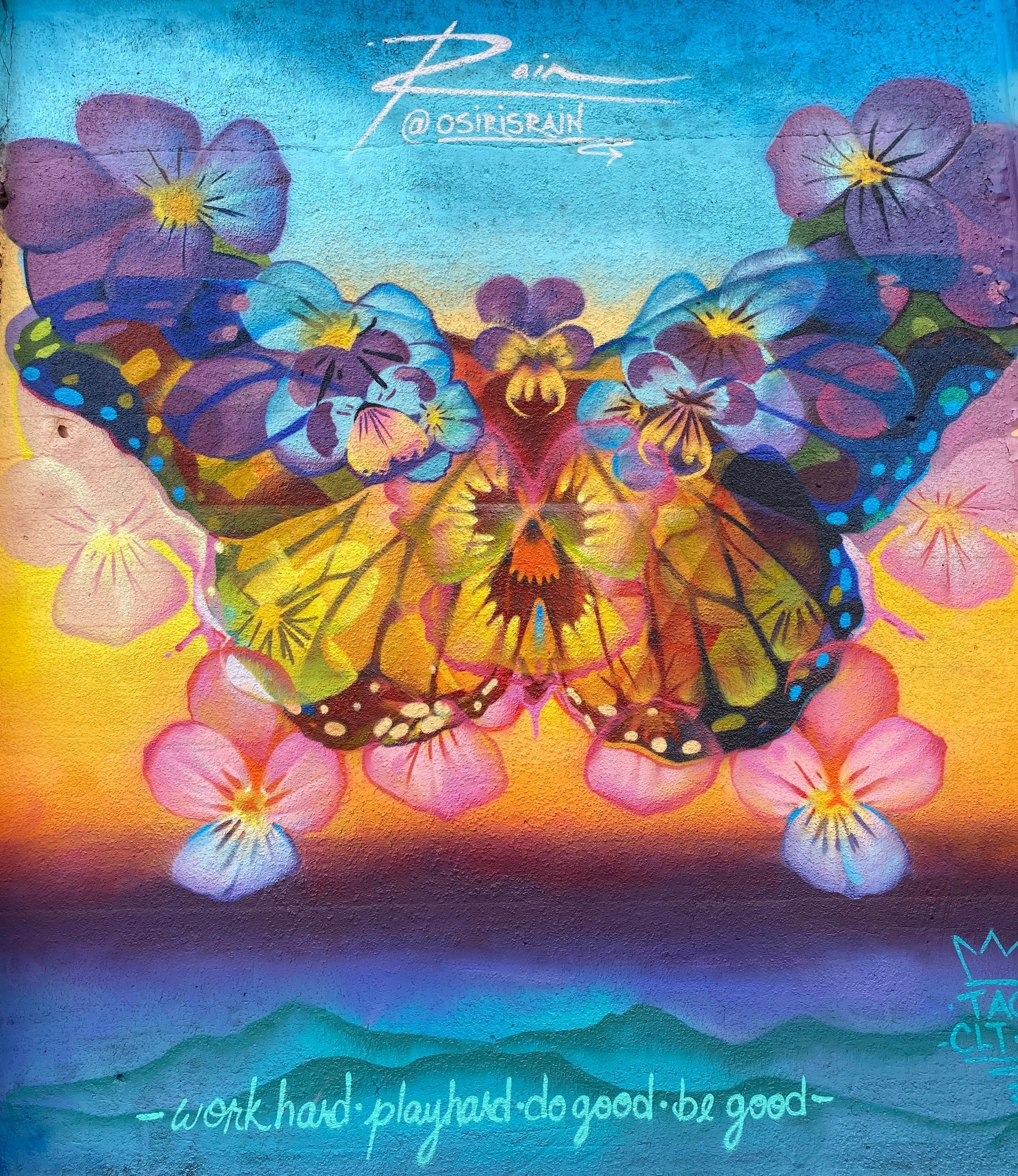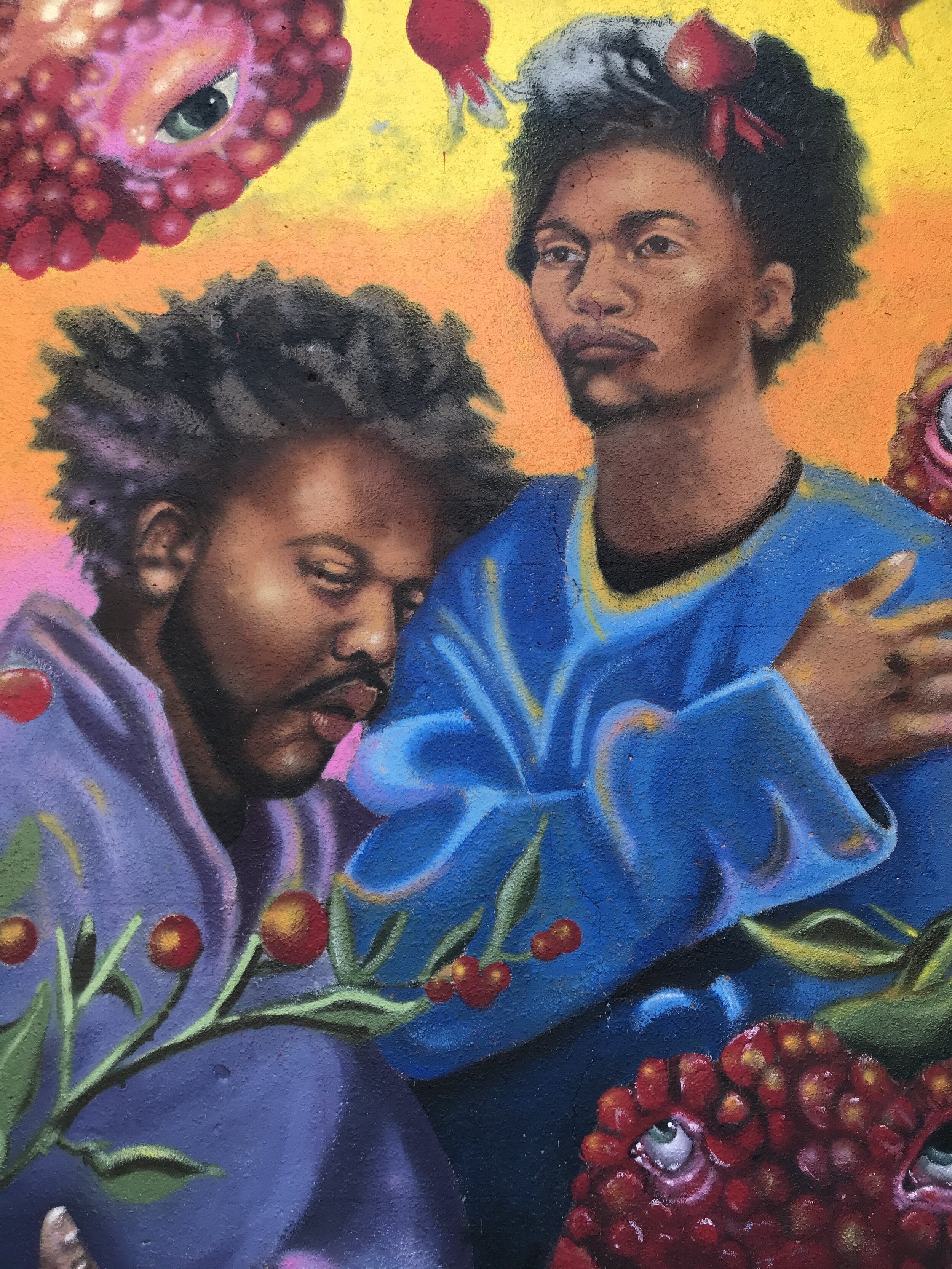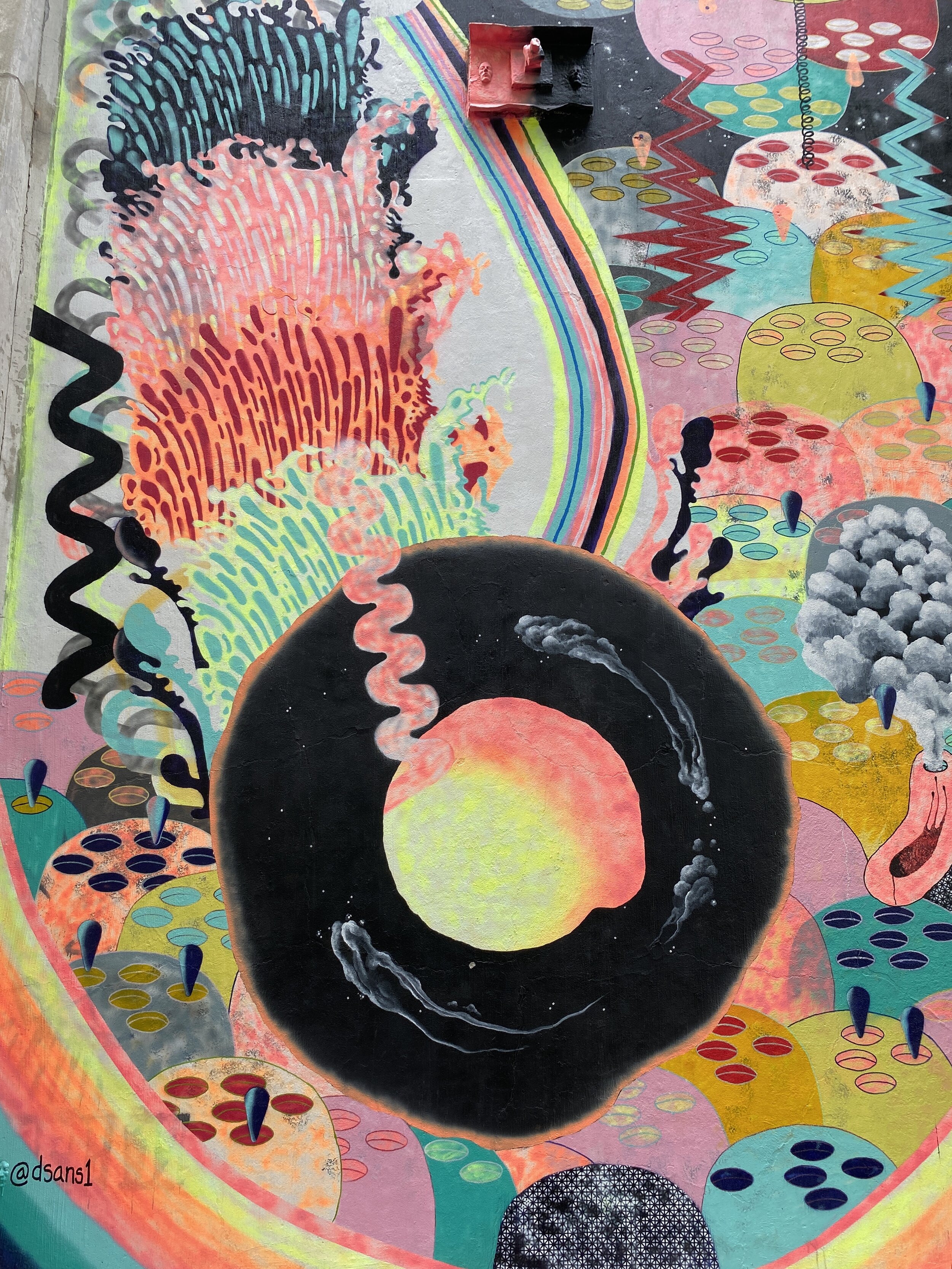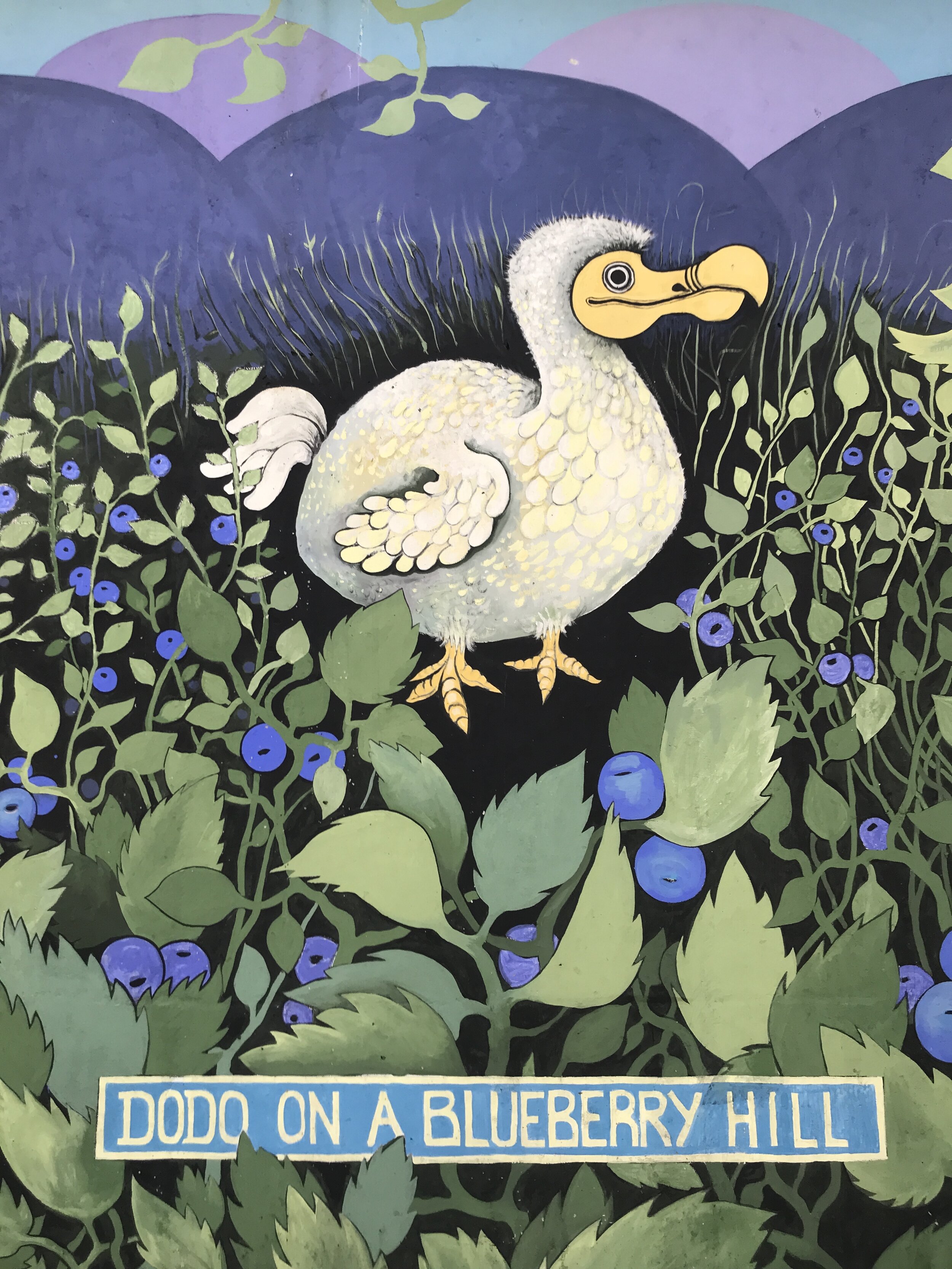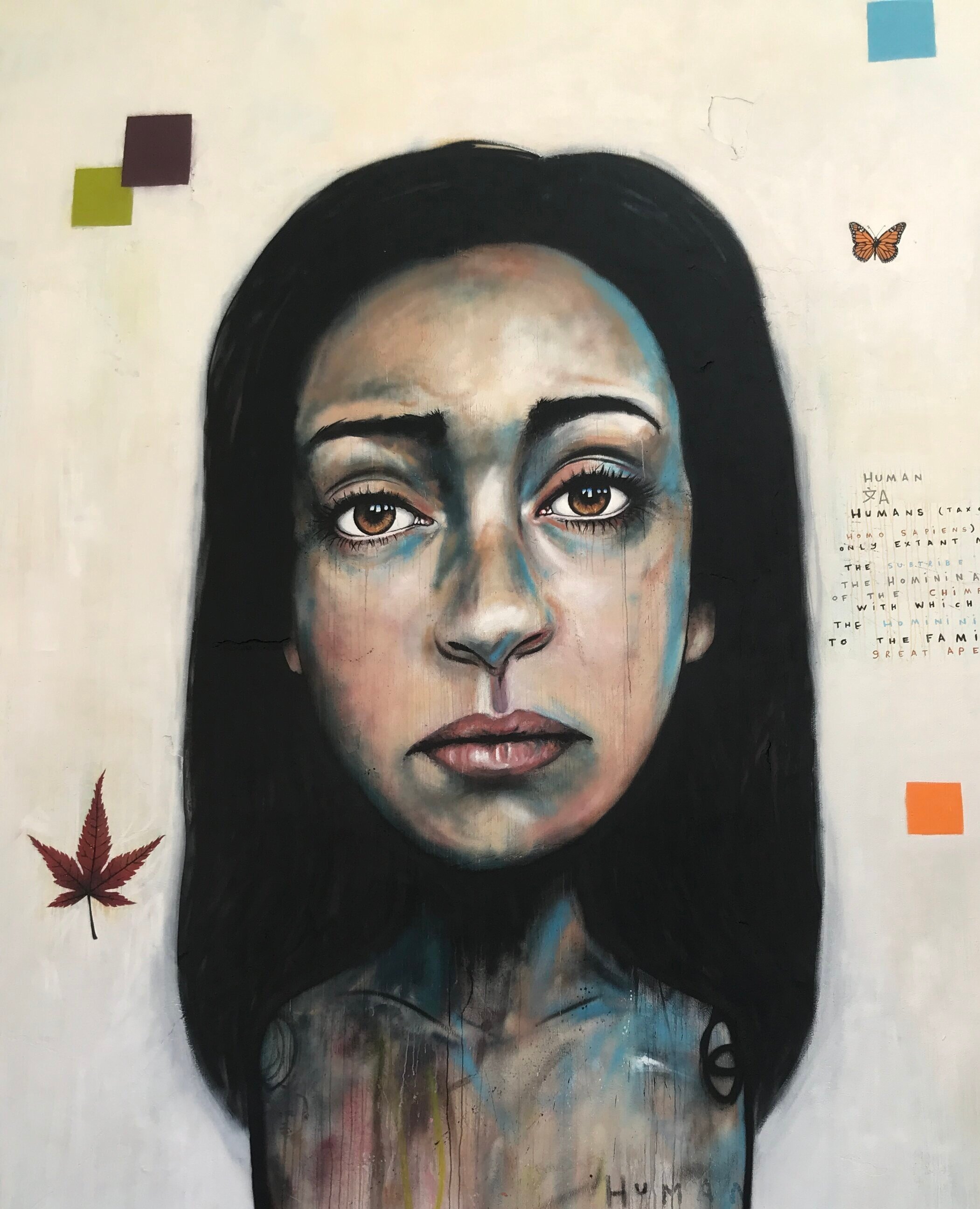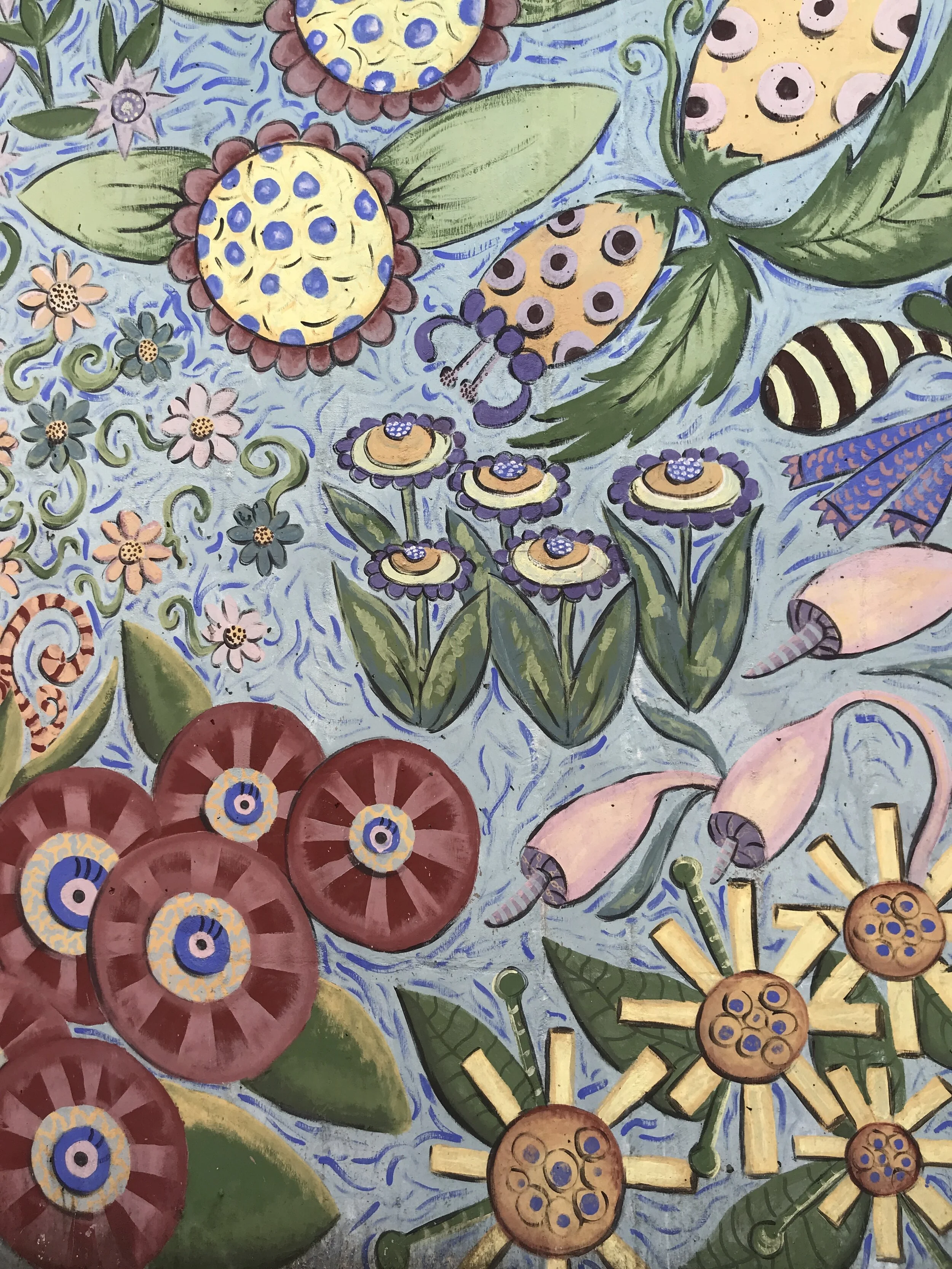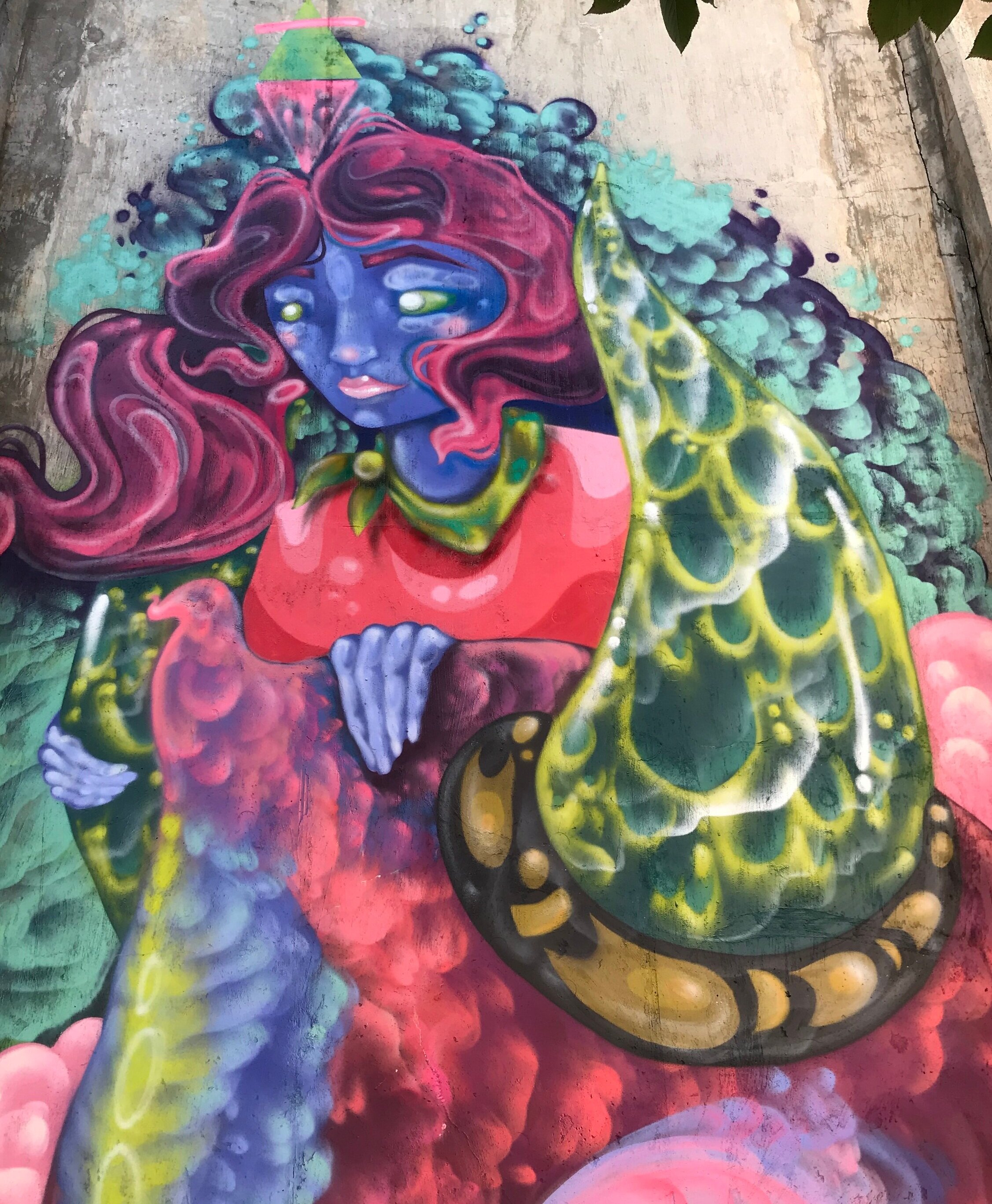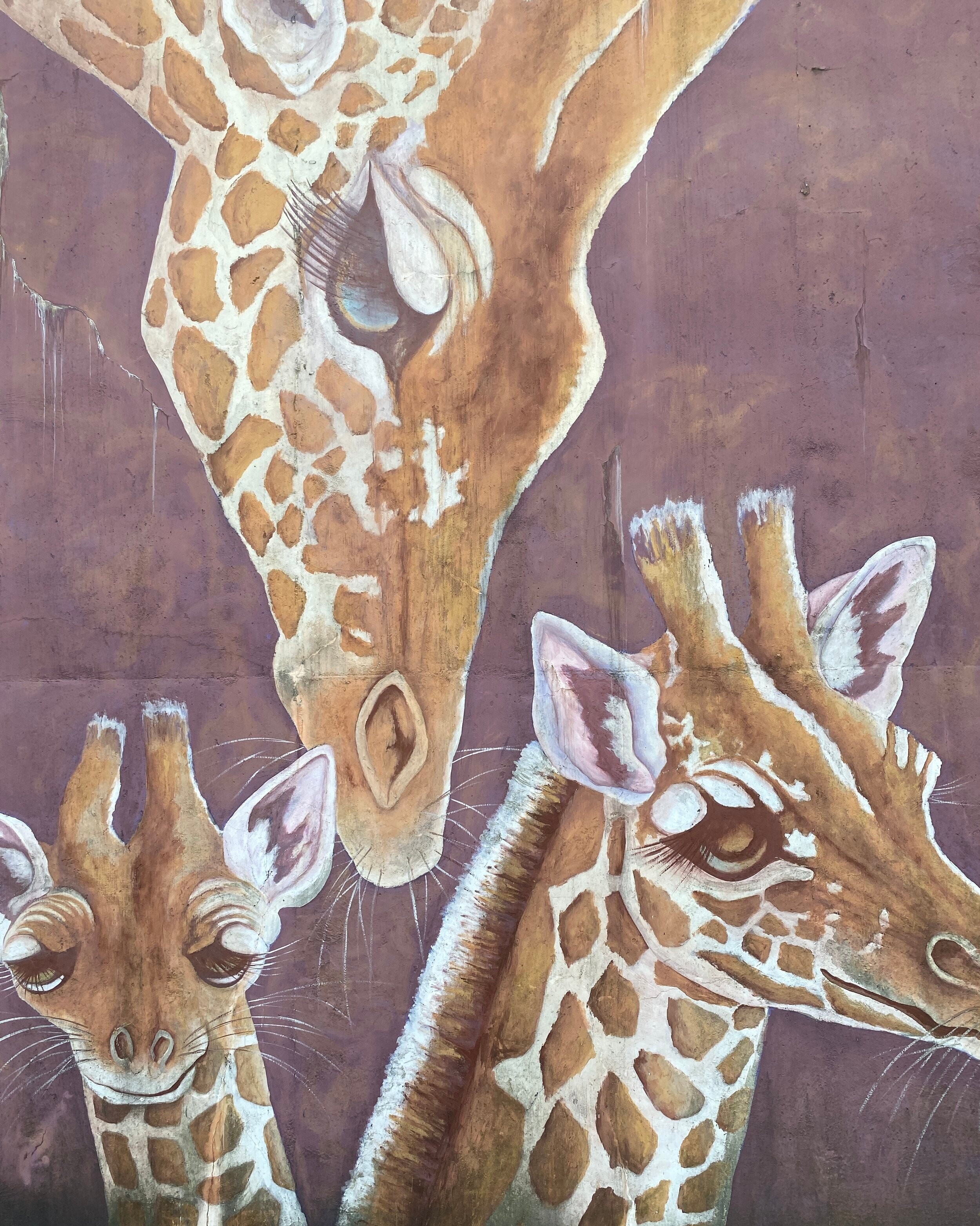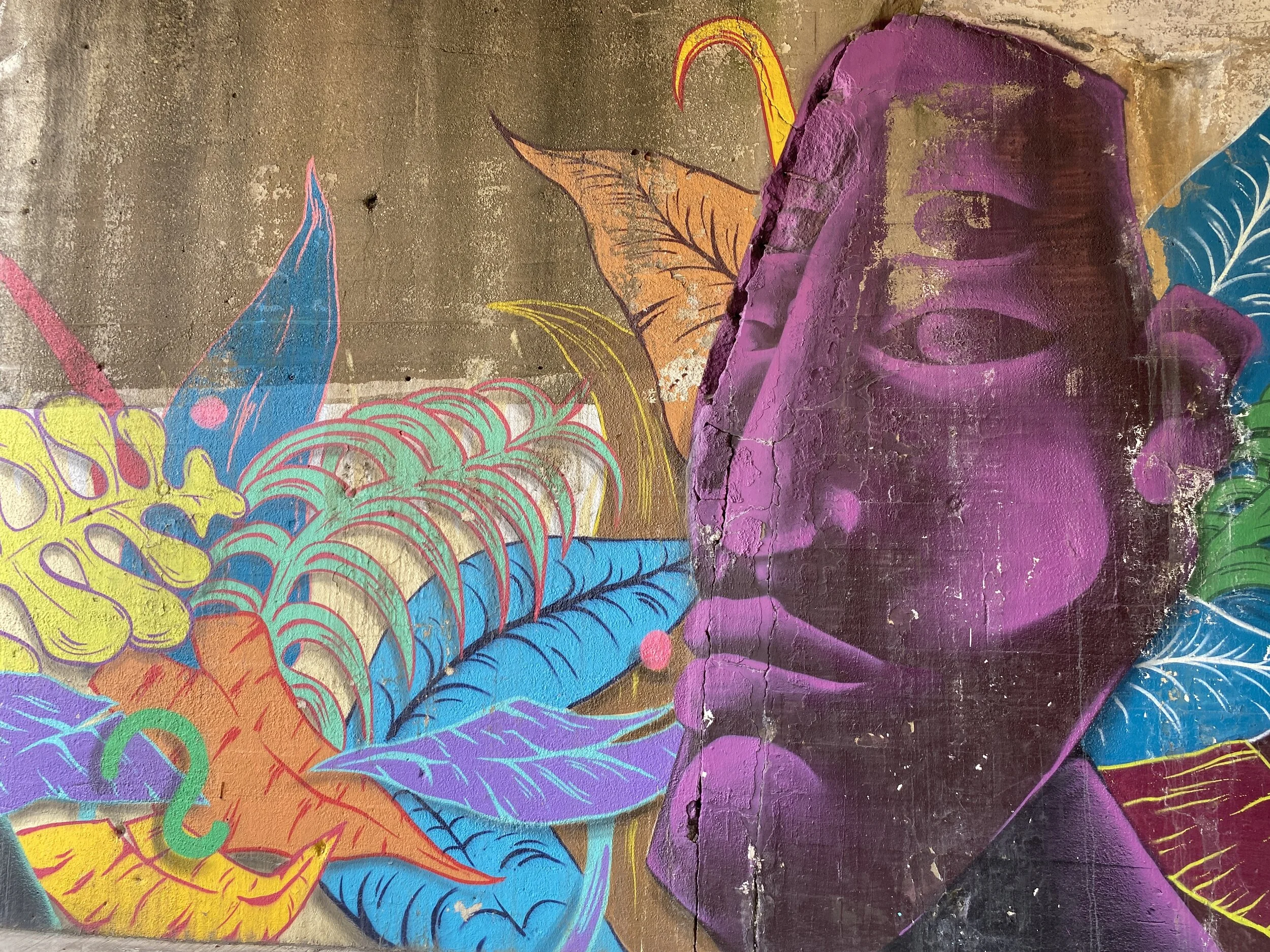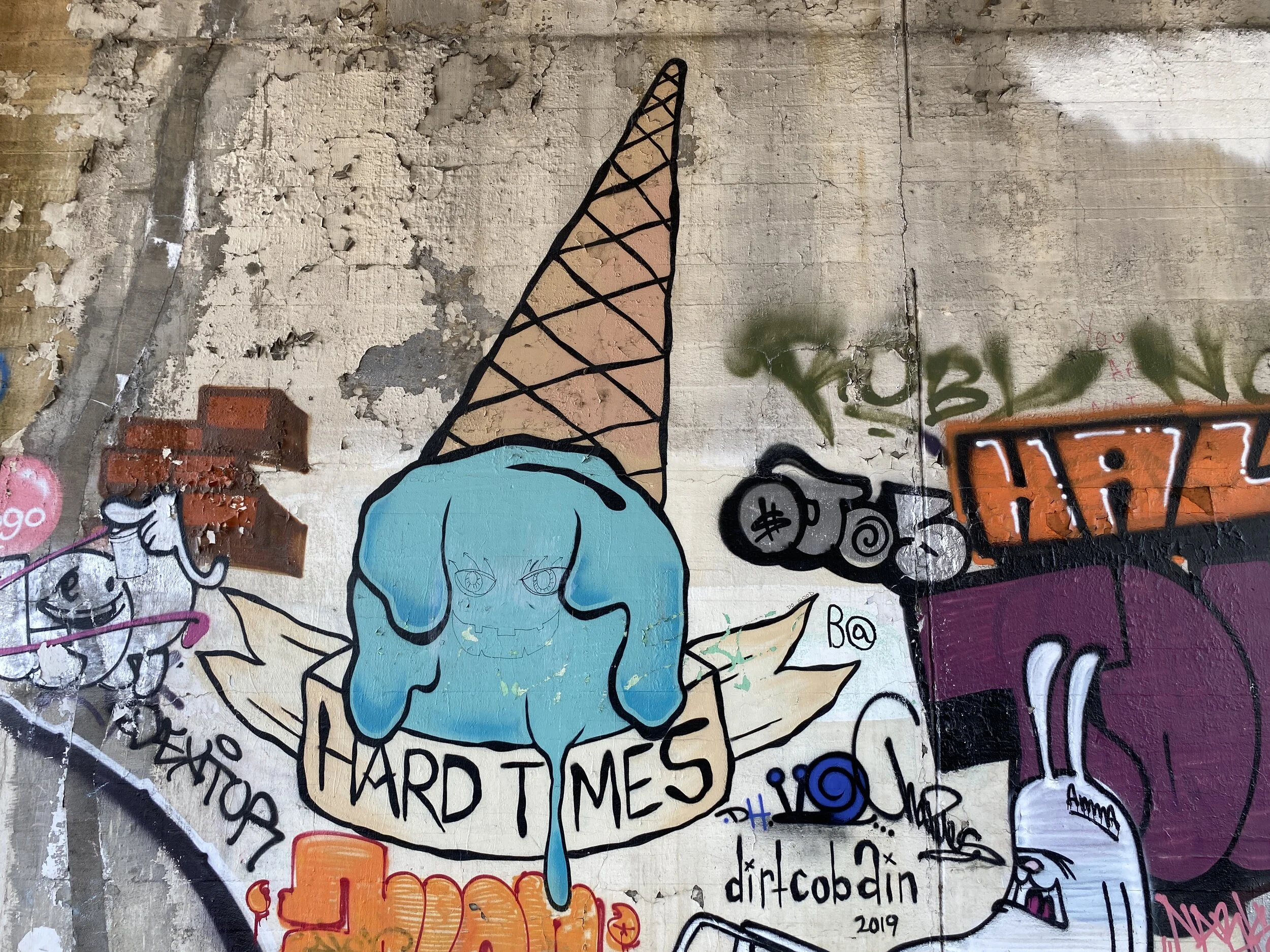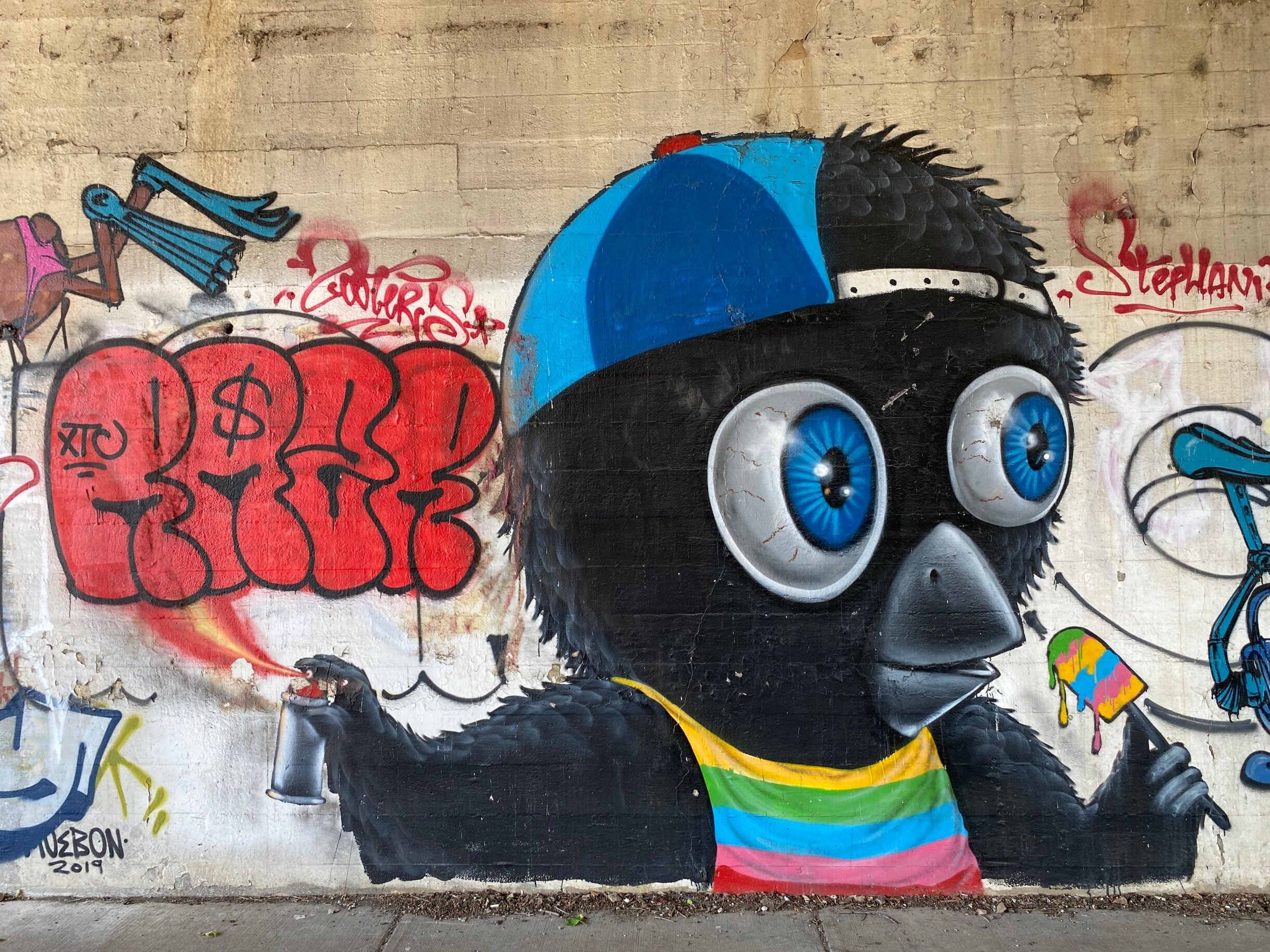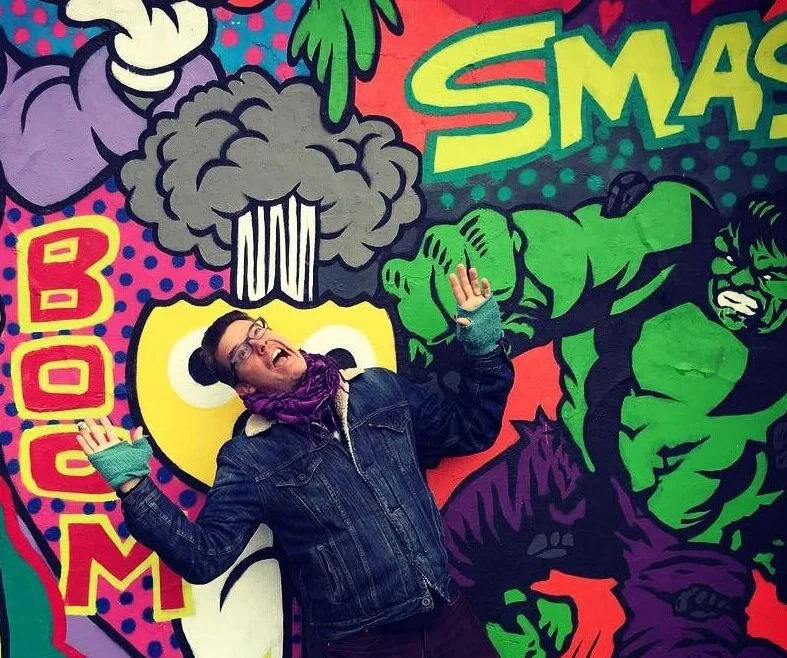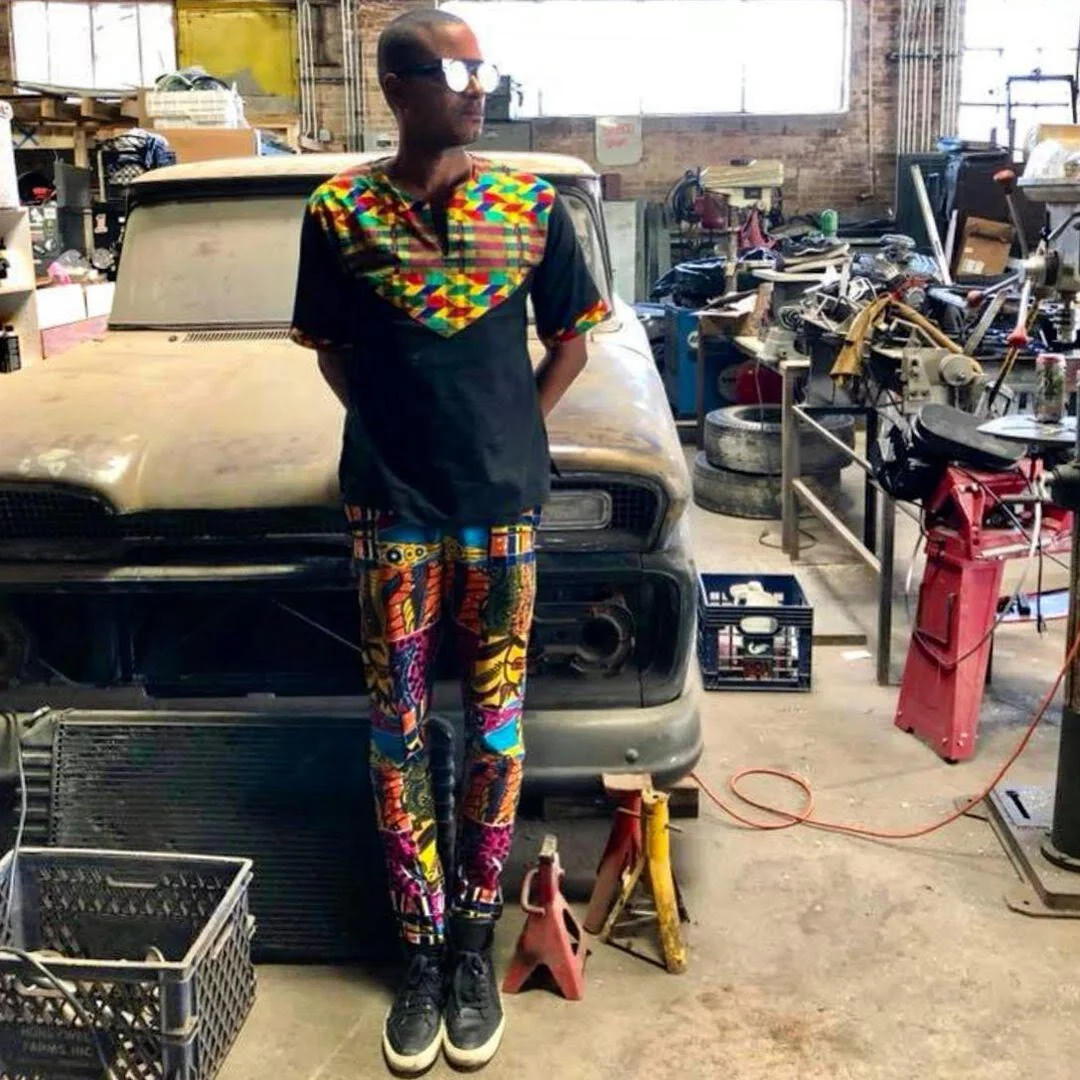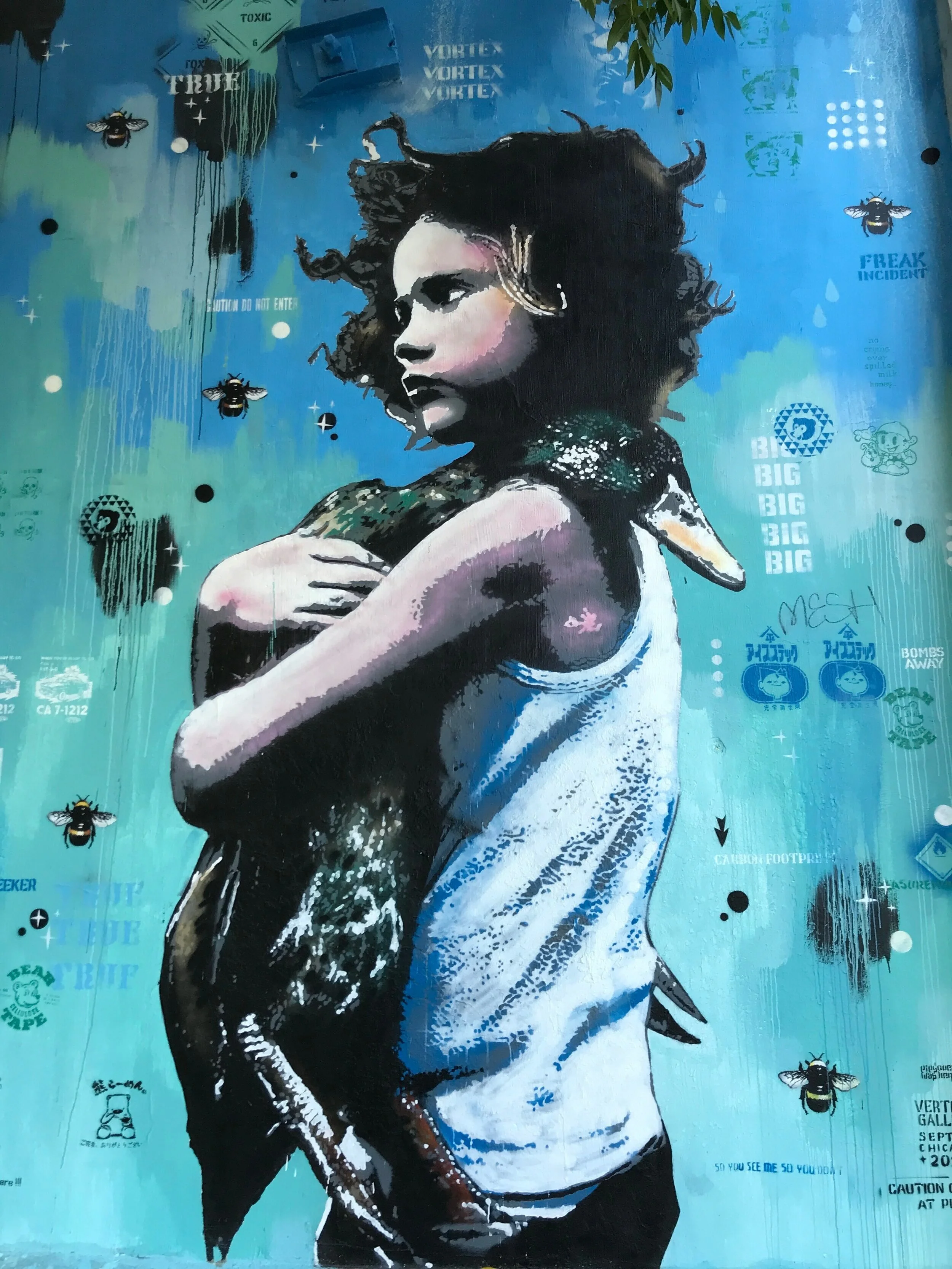Wanna see some cool murals in Chicago? This stretch of Hubbard features street art done by artists from around the world.
Pilsen or West Loop? Find out where the best murals in Chicago are.
Duke and I are obsessed with street art. We hunt it down and take pics of it wherever we go.
But, as amazing as it would be to share your art with the world, it also strikes me that it must also be heartbreaking how ephemeral street art can be. Buildings get demolished (or simply change ownership), and the artists have no claim to their work. And how awful it would be to have your work obliterated — which definitely seems to be a trend, at least in Chicago at hip venues like Soho House and the Violet Hour. In many cases, we view murals nowadays as temporary canvases, able to shine all too briefly before they are painted over and another takes its place.
One of Wally’s favorite murals on Hubbard Street
I work near Fulton Market (West Loop is Best Loop, as we say), and on my lunch break, I will often walk along Hubbard Street, from Halsted to Ogden, to admire and photograph the murals. The one downside is that there’s no real path along the street — at times you’ll be trekking through weeds and bushes to see the sights.
Even the underpasses along Hubbard are covered with cool graffiti.
At first there were many remnants from the ’70s, faded and less artistic than the amazing works done by today’s muralists. But now, every time I pass by, more and more of the original murals have been painted over, replaced by more modern artworks. Hubbard Street acts as an amazing outdoor gallery, an open-air museum of some of the most talented street artists from around the world.
¡Viva Chicago indeed! A fading luchador mural
The Hubbard Street murals blow Duke’s mind.
Great street art really packs a wallop for Wally.
I caught up with Levar Hoard, chief curator and managing director of the B_Line, a mile-long corridor of public art in Chicago’s Fulton Market District, who was kind enough to answer a few questions for us.
Levar Hoard heads up the Hubbard Street Murals project.
A Q&A With Levar Hoard of the B_Line
Tell us about the original project. When did it begin and what was its mission?
The original founder/curator was Ricardo Alonzo. When the murals started in 1971 (this year is our 50th anniversary), they were dedicated to environmental causes (pollution initially, then endangered animals). That went on to include many concepts like Mexican native art, abstract and other styles.
How did B_Line get involved?
We became the sole curators in 2017 after years of research and negotiation with the private train company that owns the walls (it's not a city project), and we legally assumed the license in perpetuity from Ricardo that was signed in 1971 with the railroad.
How do you find the artists? What’s the process with them?
We fly the world's most renowned artists to Chicago and also find Chicago’s best muralists, and discover new muralists, who we give their first commission to.
As a privately run and funded organization, we subjectively select artists based on skill level, demonstrated competence with techniques and materials, and aesthetics.
One of the artists flown in to create a mural
How do you decide where each artist is to paint, and when it’s time to paint over an existing mural?
It’s based on the condition of the wall. Most of the murals from 1971 are long gone, and we work to preserve or restore them where possible. Where it’s not possible or worthwhile, we recondition the wall and usher in a new era of art and artists that reflect the time we now live in — the M.O. of street art.
What’s your favorite thing about the mural project?
Meeting thousands of people that visit the murals weekly.
Be sure to check out B_Line’s Instagram feed for video interviews about their many projects and history: @blinechicago.
To learn more about the history of the Hubbard Street Murals, read this Reader article.
We also reached out to a couple of the street artists behind our favorite murals along the stretch of Hubbard. Here are their stories.
Nurture or Nature by the street artist duo Pipsqueak Was Here!!!
A Q&A With Pipsqueak Was Here!!!
The Amsterdam, Netherlands-based street artist duo known as Pipsqueak Was Here!!! told us about their experience with the Hubbard Street Murals:
We were in Chicago for a show with Vertical Gallery and had a few days to play around. Patrick Hull, who runs the gallery, introduced us to Levar Hoard, who curates the B_Line paintings. He helped us out with two ladders, and Patrick provided us with some paint.
We painted a girl holding a duck, a stencil we had with us because we planned to do a mural for the RAW Project, an incredible collective to improve the environment of elementary schools around the USA.
Our painting is called Nurture or Nature. The work, like most of our paintings, is a combination of a child with an animal. We combine these two to depict the relationship between human beings and the remaining natural environment. Most of our work is about how we treat the world and how, in return, it treats us.
Nurture or Nature poses the question, should we protect what is left or should we let nature take its course, whatever the consequences may turn out to be?
We really enjoyed being part of this wonderful project, as we found it incredible to see that they included and restored some of the paintings over 40 years old. It was an honor to contribute to such a rich tradition, and we were really helped by Lavar, Patrick and Margaux Comte, who took photographs while we worked.
We had an overwhelming response to this painting, and it really was fun being able to do something like this on such short notice.
Here’s a short time-lapse video of the mural creation.
The Hubbard Street mural painted by Stinkfish
A Q&A With Stinkfish
The artist known as Stinkfish told us:
I got involved by an invitation by B_Line and through my gallery in Chicago, Vertical Gallery.
I used a portrait of a girl in a workshop I did in Vienna, Austria. She had the mask because we were using spray paint.
Then came COVID, and the piece took on another relevance and meaning.
It was a good experience. It’s a nice place to paint. The project gave me the opportunity to see different styles, techniques and messages in the same place.
If you’re a fan of murals, you can’t miss the Hubbard Street corridor. This might be a controversial view, but I prefer these murals to those on 16th Street in Pilsen, another legendary stretch of street art in Chicago. With new artists constantly creating works of art, a walk along Hubbard is never quite the same, even just weeks apart. –Wally
